19 Harsh Truths About Human Nature - Alex Hormozi | Modern Wisdom Podcast 610
Last updated: Jun 6, 2023
This video by Chris Williamson is an interview with Alex Hormozi discussing various harsh truths about human nature, including the idea that having nothing to lose can actually be an advantage and that people often create imaginary obstacles in their minds that prevent them from taking action.
The video is an interview with Alex Hormozi on the Modern Wisdom Podcast, where he discusses 19 harsh truths about human nature.
One of the topics discussed is how people who feel they have nothing to lose often still feel like they have a lot to lose due to the stories they tell themselves about what others will think of them if they fail.
Hormozi suggests that people need to get specific and narrow down the voices that are holding them back, and eliminate the downside to increase their action threshold. He also talks about the advantages and disadvantages of different positions in business and how people can use their disadvantages to their advantage.
- Having nothing to lose can be an advantage in taking action.
- People should focus on the advantages of their position rather than the disadvantages.
- Breaking down imaginary obstacles and identifying specific voices can free people from their fears.
- Reframing failure as a learning opportunity is important for growth and success.
- Confronting the source of shame and fear can help overcome it.
- Building the muscle of overcoming hesitation involves identifying the real reason for hesitation.
- Seeing content creation as practice can decrease the stakes associated with it.
- Breaking down goals into smaller, achievable milestones can help motivate individuals.
- Changing one's environment can be an effective way to improve one's life.
- Projections and rewards can help individuals stay motivated and focused on their goals.
19 Harsh Truths About Human Nature - Alex Hormozi | Modern Wisdom Podcast 610 - YouTube
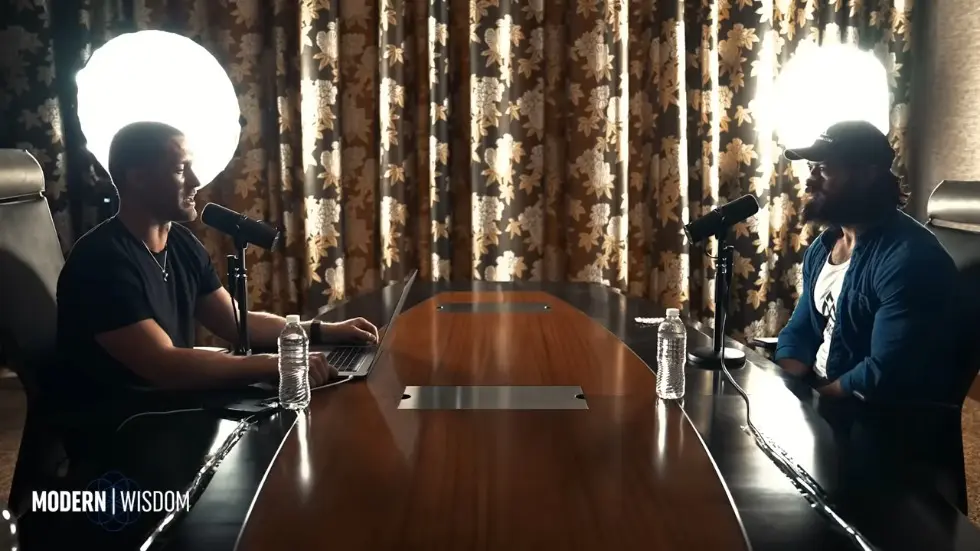
Section 1: Having Nothing to Lose
- People often see having nothing going for them as a disadvantage.
- However, having nothing to lose can actually be an advantage.
- If you eliminate downside, it should decrease your action threshold.
- People often create imaginary obstacles in their minds that prevent them from taking action.
- These obstacles are usually stories they tell themselves about what other people will think about them if they fail.
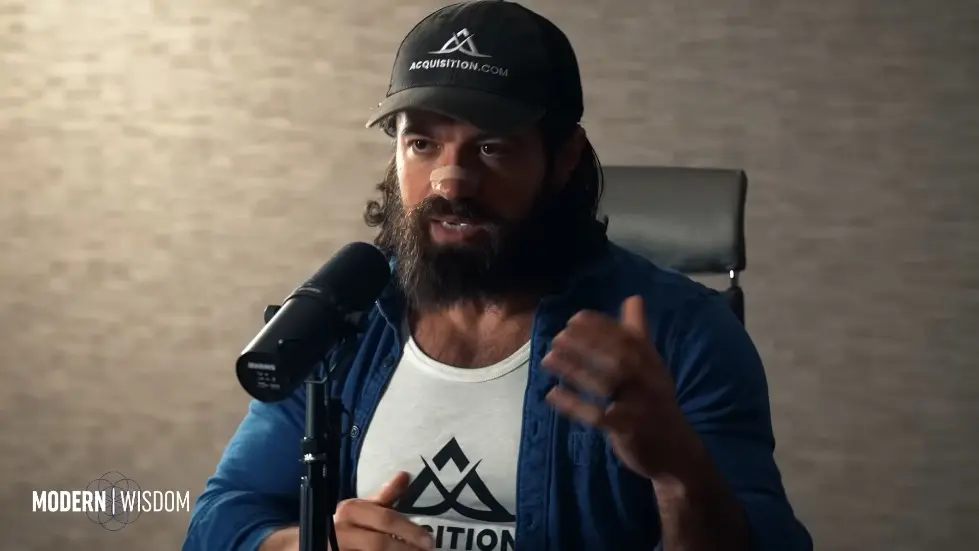
Section 2: Advantages and Disadvantages
- Every position in a game or business has advantages and disadvantages.
- People often look at successful individuals and assume they have it easy.
- However, smaller positions can be more nimble and offer more personalized attention to customers.
- People should focus on the advantages of their position rather than the disadvantages.
- Eliminating downside can bias people towards taking action.
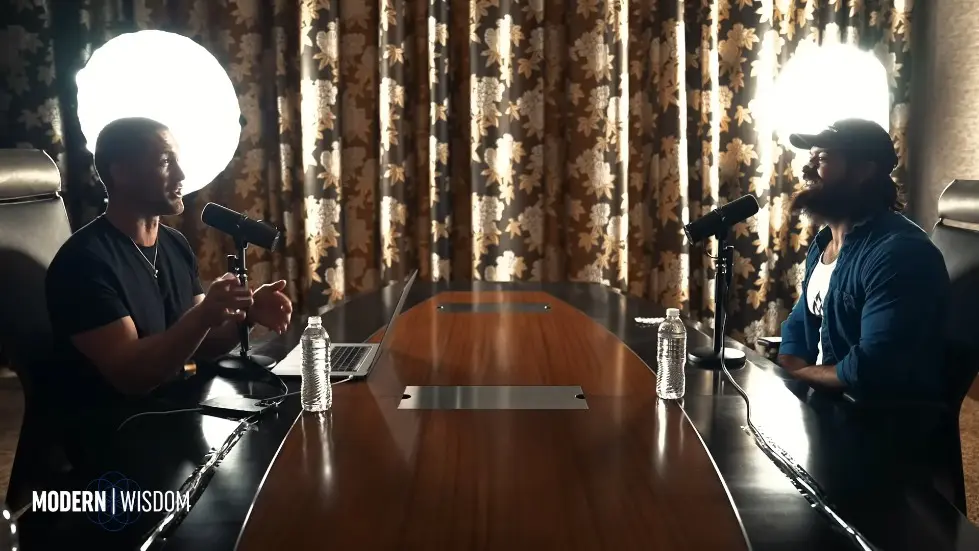
Section 3: Getting Specific and Narrow
- People often feel like they have a lot to lose even if they have nothing objectively to lose.
- Everything they feel like they have to lose is purely made up in their mind.
- These stories are often about what other people will think about them if they fail.
- It's important to get specific and narrow on the voices in people's heads that are holding them back.
- By breaking down these stories and identifying the specific voices, people can free themselves from their imaginary obstacles.

19 Harsh Truths About Human Nature - Alex Hormozi | Modern Wisdom Podcast 610 - YouTube
Section 4: Overcoming Fear of Failure
- People often fear failure because they believe it will lead to negative consequences.
- However, failure is often necessary for growth and success.
- People should reframe failure as a learning opportunity rather than a negative outcome.
- It's important to take action and embrace failure as a necessary part of the process.
- By taking risks and learning from failure, people can achieve their goals and reach their full potential.
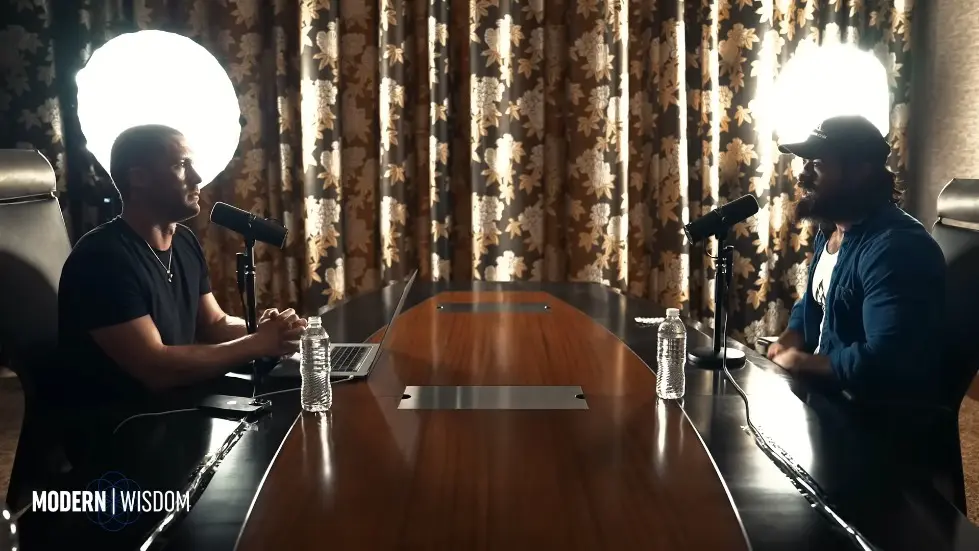
Overcoming Shame and Fear
- Shame only exists in the shadows, so bringing it to light can be cleansing.
- Identifying the source of shame and fear can help overcome it.
- People often create imaginary obstacles in their minds that prevent them from taking action.
- Confronting the real scenario can help alleviate fear and shame.
- Starting out with a small audience can be an advantage because there are fewer people to judge.

Building the Muscle of Overcoming Hesitation
- Building the muscle of overcoming hesitation involves identifying the real reason for hesitation.
- Relational capital and perceived status can be reasons for hesitation.
- Confronting the source of hesitation can be embarrassing but liberating.
- Starting out with a small audience can be an advantage because there are fewer people to judge.
- Objection handling is key to overcoming hesitation.
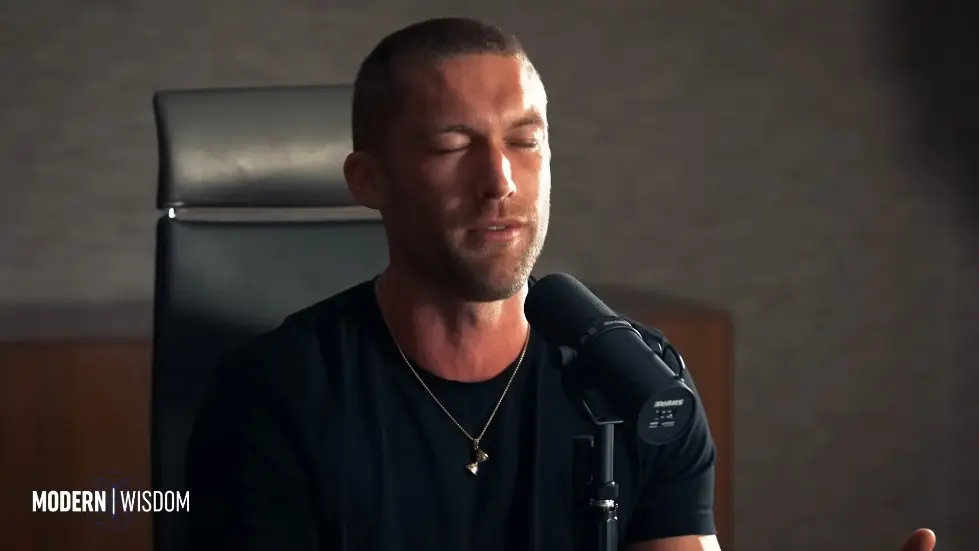
Seeing Content Creation as Practice
- Seeing content creation as practice rather than the main game can decrease the stakes associated with it.
- Tracking progress in multiple ways can help increase motivation.
- Looking at small numbers as micro-events can make the work feel worthwhile.
- Combining absolute growth and relative growth can help track progress effectively.
- Starting out with a small audience can be an advantage because there are fewer people to judge.

The Advantage of Having Nothing to Lose
- Having nothing to lose can be an advantage because there are fewer perceived risks.
- Starting out with a small audience can be an advantage because there are fewer people to judge.
- Objection handling is key to overcoming hesitation.
- Confronting the source of hesitation can be embarrassing but liberating.
- Tracking progress in multiple ways can help increase motivation.
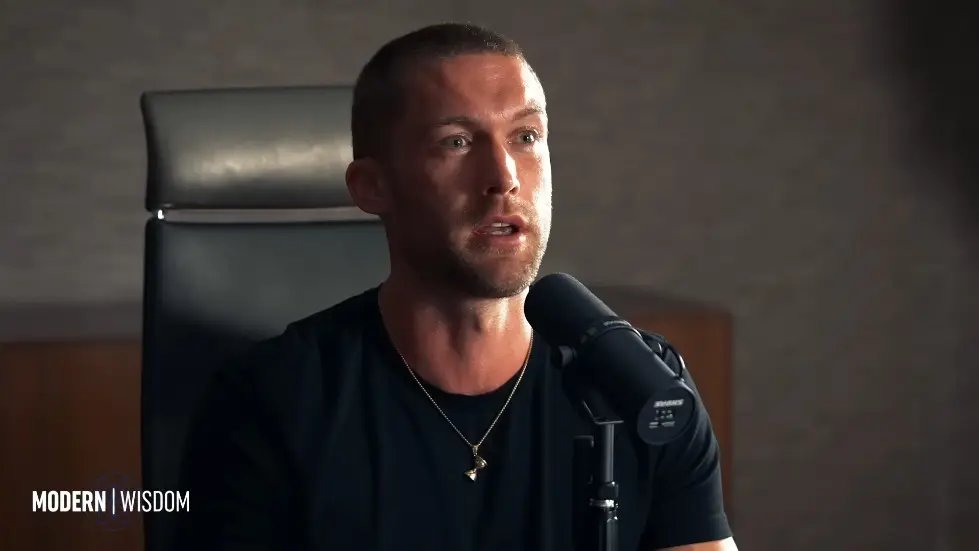
Gamifying Success
- Breaking down goals into smaller, achievable milestones can help motivate individuals to continue working towards their larger goals.
- Using social media as a tool for gamification can help individuals feel a sense of accomplishment and progress.
- People often associate social media with status and use it as a way to quantify their success.
- Having a variety of skills and finding different ways to reward oneself can help extend an individual's time horizon and keep them motivated.
- Tracking progress and finding ways to win can help individuals stay motivated over the long term.

Changing Your Environment
- Changing one's environment can be an effective way to improve one's life.
- Changing one's environment doesn't necessarily mean moving to a new city or country, but can also mean changing one's living situation or social circle.
- People often make judgments about an entire city or place based on limited experiences.
- It's important to recognize that changing one's environment can have a significant impact on one's mental and emotional well-being.
- Changing one's environment can also provide new opportunities and experiences.
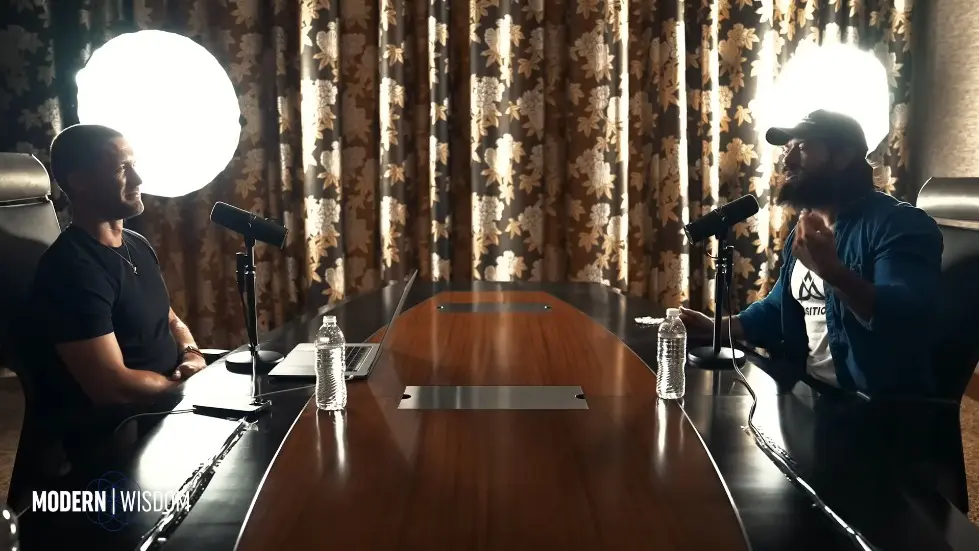
The Power of Projection
- Using projections and Excel spreadsheets can help individuals plan for the future and set achievable goals.
- Projections can help individuals account for unforeseen events and provide a sense of padding or security.
- Projections can also help individuals see the potential for growth and progress over time.
- Projections can be used in a variety of contexts, from business planning to personal goal-setting.
- Projections can help individuals stay motivated and focused on their long-term goals.

The Importance of Rewarding Oneself
- People who are successful often find ways to reward themselves for their hard work and achievements.
- Having a variety of skills and finding different ways to reward oneself can help extend an individual's time horizon and keep them motivated.
- Creating micro-games within larger goals can help individuals stay motivated and focused.
- Tracking progress and finding ways to win can help individuals stay motivated over the long term.
- Recognizing the importance of rewarding oneself can help individuals stay motivated and focused on their goals.
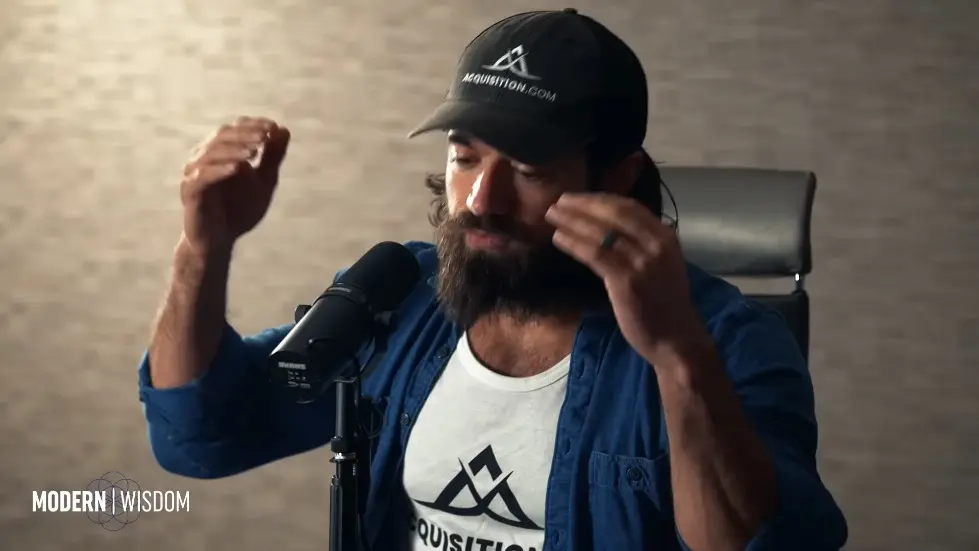
Changing Environment to Change Behavior
- 25% of soldiers who went to Vietnam tried heroin.
- 90% of heroin addicts who go to clinics relapse.
- People are addicted to the environment they are in.
- Changing environments eliminates triggers and cues associated with the habit.
- Changing environments is the easiest way to change actions.
- Having multiple places to work at can help change the vibe and mode of working.
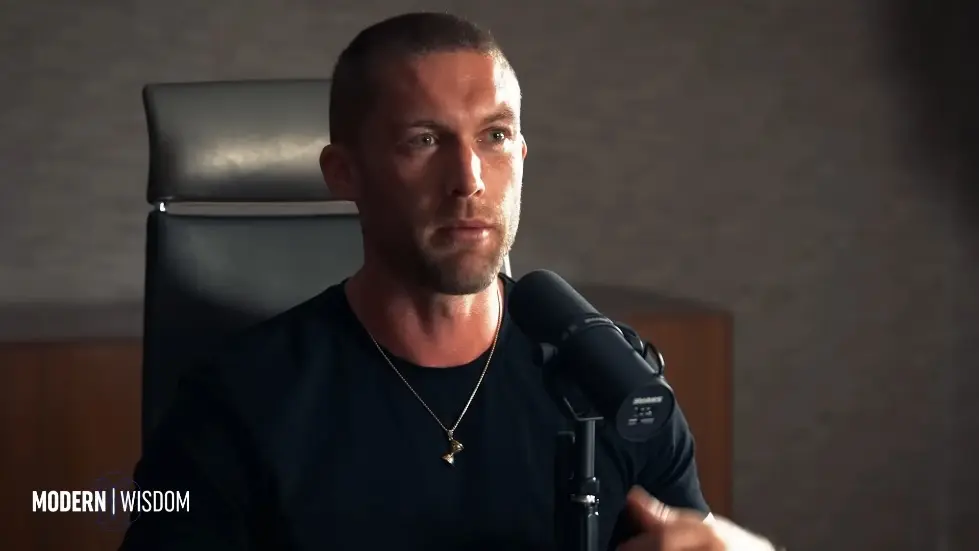
Cuing New Behaviors by Changing Environment
- Identifying why you don't like doing something can help isolate the punishment for the behavior.
- Cuing yourself on a more regular basis by changing the environment can help start new behaviors.
- Distractions often come dressed as easy opportunities.
- As people accumulate success, distractions become an increasingly big problem.
- Entrepreneurs get reinforced for changing direction, which can lead to overeating and changing direction too often.
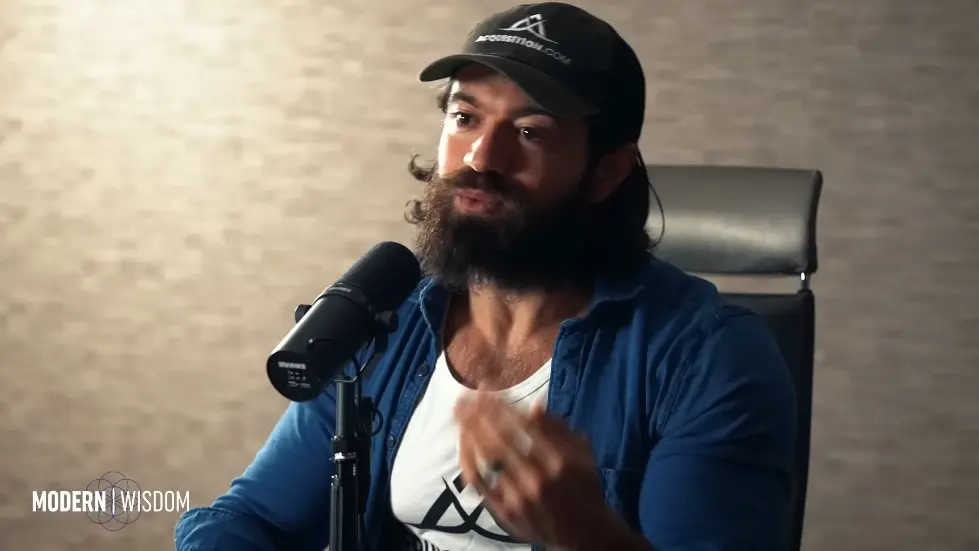
Having Nothing to Lose Can Be an Advantage
- People who have nothing to lose can take bigger risks.
- People who have nothing to lose can be more focused on the task at hand.
- People who have nothing to lose can be more creative in finding solutions.
- People who have nothing to lose can be more resilient in the face of failure.
- Having nothing to lose can be a temporary advantage, as it can lead to complacency once success is achieved.
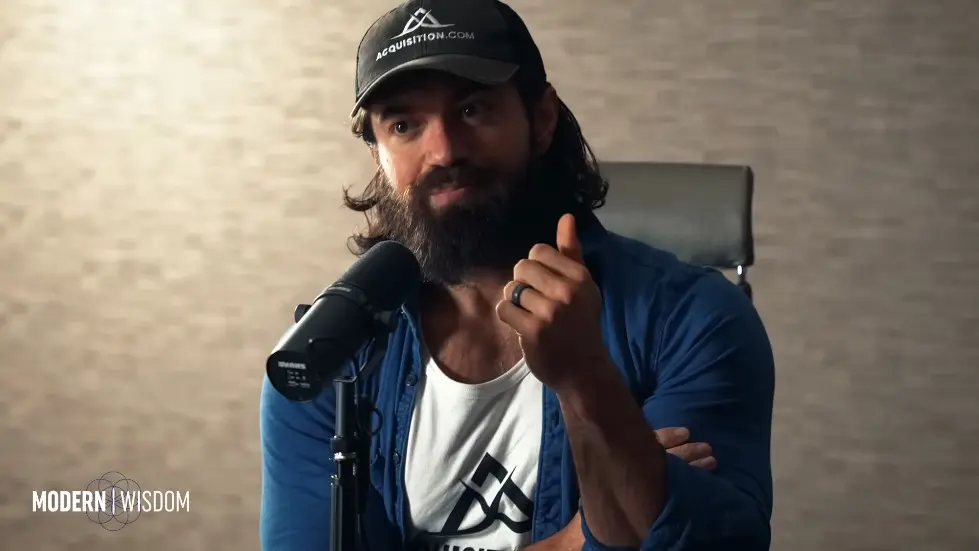
Creating Imaginary Obstacles in the Mind
- People often create imaginary obstacles in their minds that prevent them from taking action.
- These obstacles are often based on fear, uncertainty, and doubt.
- People can overcome these obstacles by taking small steps and building momentum.
- People can also overcome these obstacles by reframing their mindset and focusing on the potential benefits of taking action.
- Imaginary obstacles can be a self-fulfilling prophecy if people allow them to prevent them from taking action.
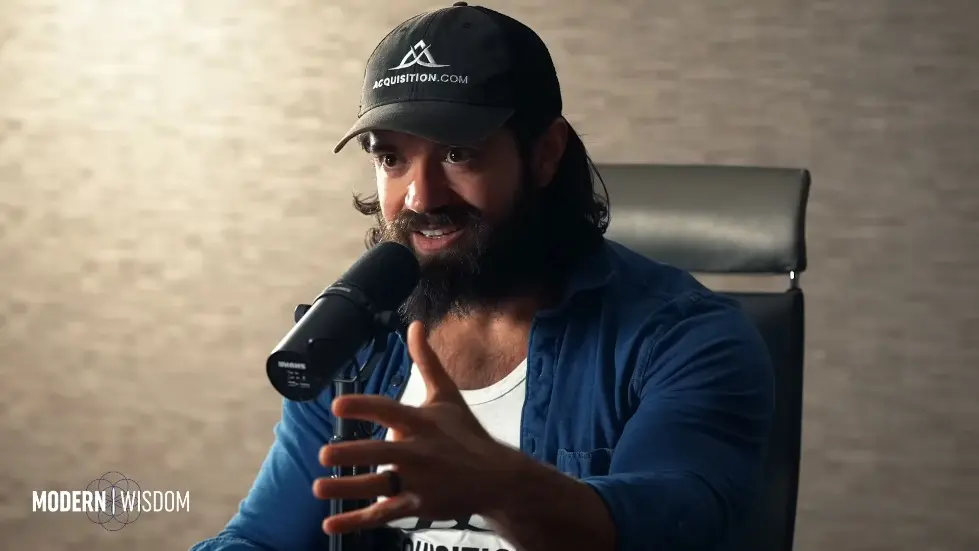
Learning the Right Lesson
- Entrepreneurship is about learning the right lesson from a circumstance.
- People often create imaginary obstacles in their minds that prevent them from taking action.
- Lessons that people tell may not be the right lesson.
- It is important to learn the right lesson from a situation.
- Entrepreneurs should not generalize a bad experience to an entire group of people.
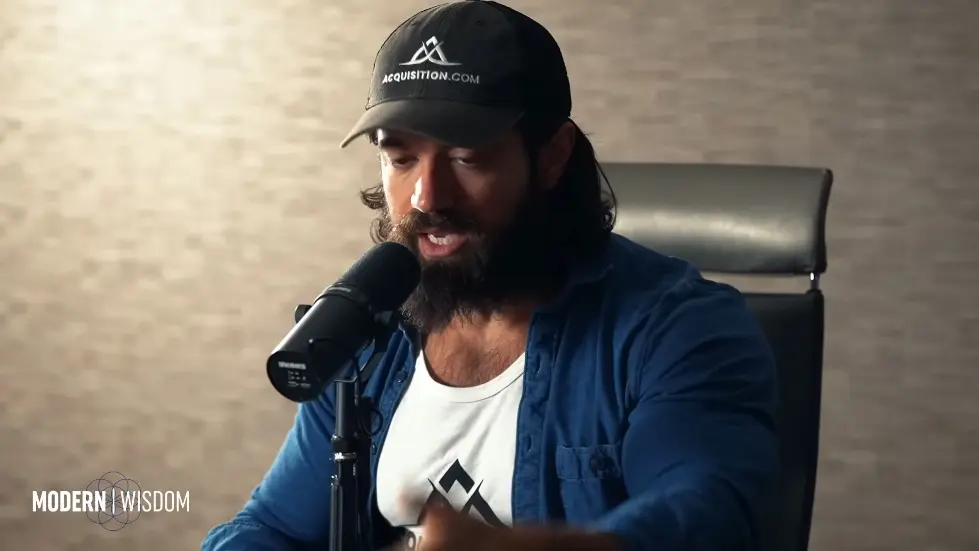
Saying No to Opportunities
- The higher up in business you get, the more attractive the opportunities become.
- Entrepreneurs need to learn to say no to distractions.
- It is hard to say no to opportunities, especially when the upside is limitless.
- Having a clear vision helps entrepreneurs say no to distractions.
- Successful people say no to almost everything.

Specializing as You Grow
- As you grow, you need to specialize more.
- Distractions become greater as you grow, so you need to specialize to avoid them.
- Specializing in projects and generalizing skills is important.
- Being a generalist in terms of skill set is not the same as being a generalist in terms of projects.
- Specializing helps entrepreneurs avoid becoming spread too thin.
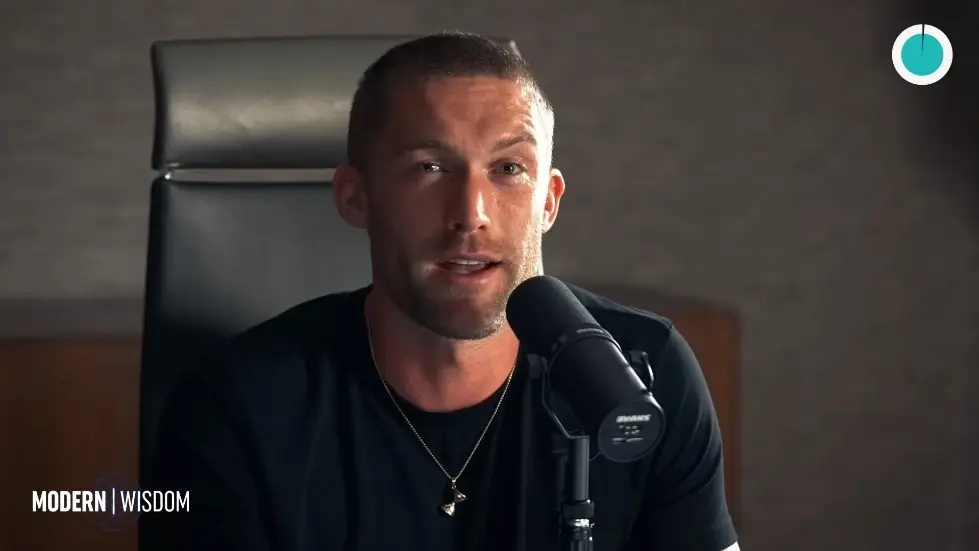
Periodizing Work
- Periodizing work is like periodizing weightlifting.
- Specializing in certain areas for a period of time can help avoid distractions.
- As you grow, distractions become more magnified.
- Specializing helps entrepreneurs avoid becoming distracted.
- Specializing in projects and generalizing skills is important.
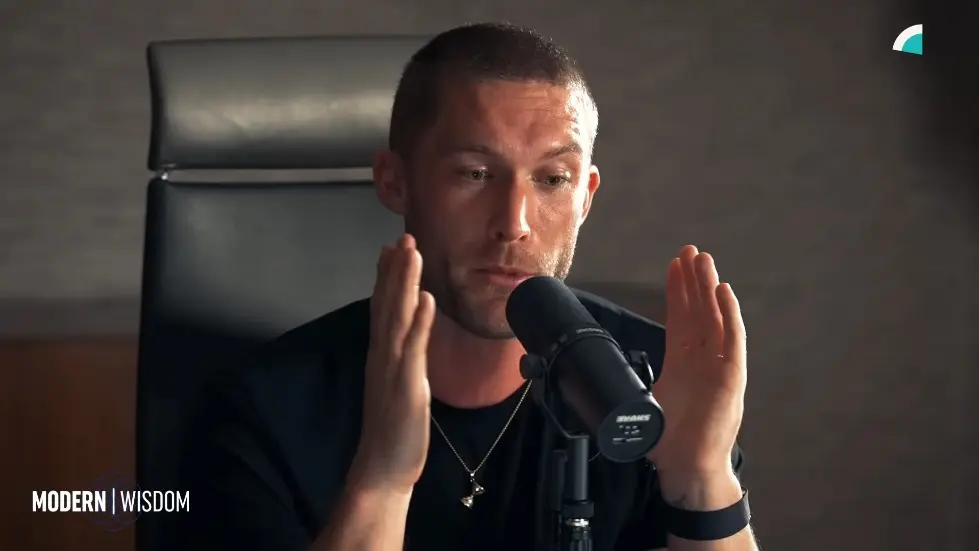
Advantages of Having Nothing to Lose
- Having nothing to lose can be an advantage because it allows you to take risks without fear of failure.
- People who have nothing to lose are often more motivated to succeed because they have no safety net.
- Having nothing to lose can give you a sense of freedom and independence.
- People who have nothing to lose are often more creative and resourceful because they have to be.
- Having nothing to lose can be a wake-up call that forces you to reevaluate your life and make positive changes.
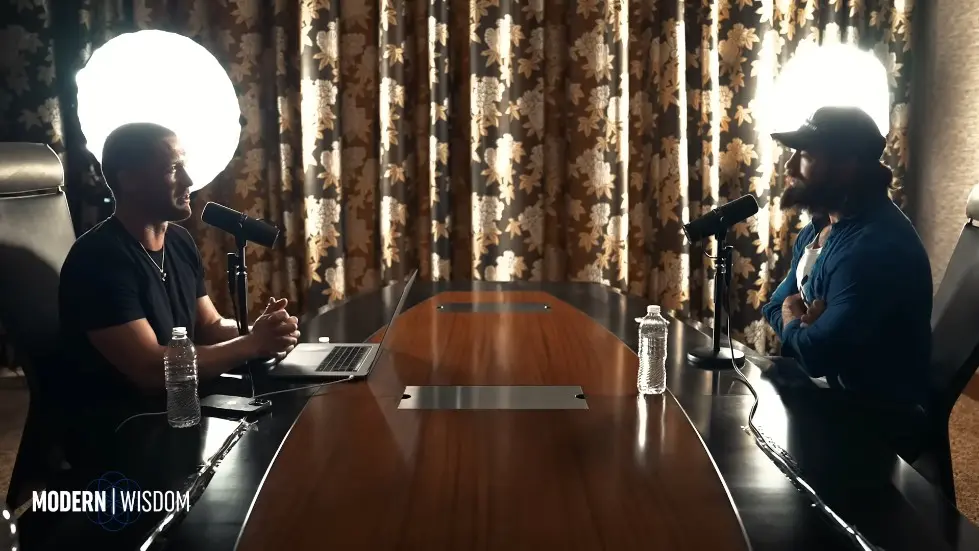
Creating Imaginary Obstacles
- People often create imaginary obstacles in their minds that prevent them from taking action.
- These obstacles are often based on fear, self-doubt, and limiting beliefs.
- Imaginary obstacles can be overcome by taking small steps and building momentum.
- It's important to identify and challenge your limiting beliefs in order to overcome imaginary obstacles.
- Imaginary obstacles can be a form of self-sabotage that prevents you from achieving your goals.
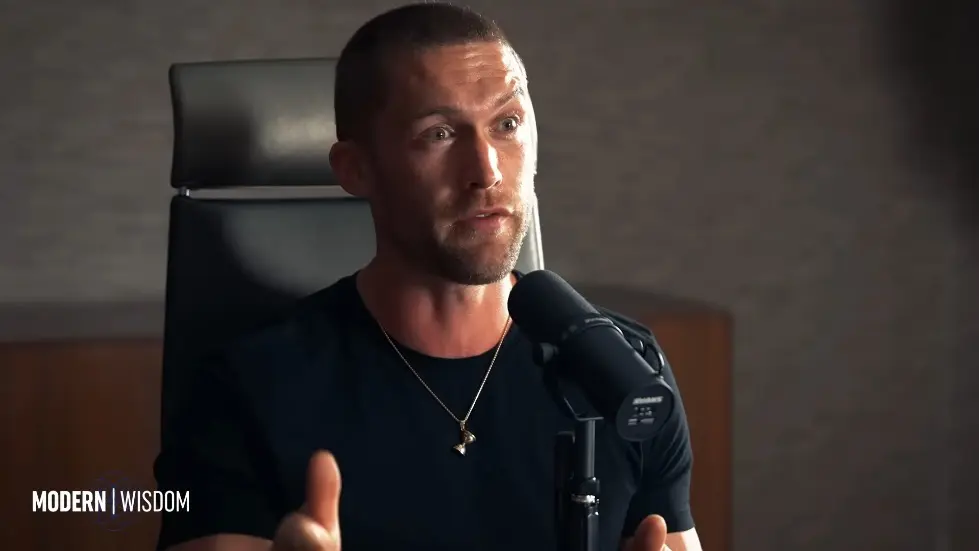
Conquering Tiny Impulses
- Conquering tiny impulses is the key to achieving big dreams.
- Stacking small victories can give you the confidence and momentum to achieve bigger goals.
- It's important to recognize and celebrate small successes in order to build confidence and motivation.
- Belief and action are interconnected, and taking action can help you build belief in yourself.
- Imposter syndrome can be overcome by building an undeniable stack of proof that you are capable and competent.
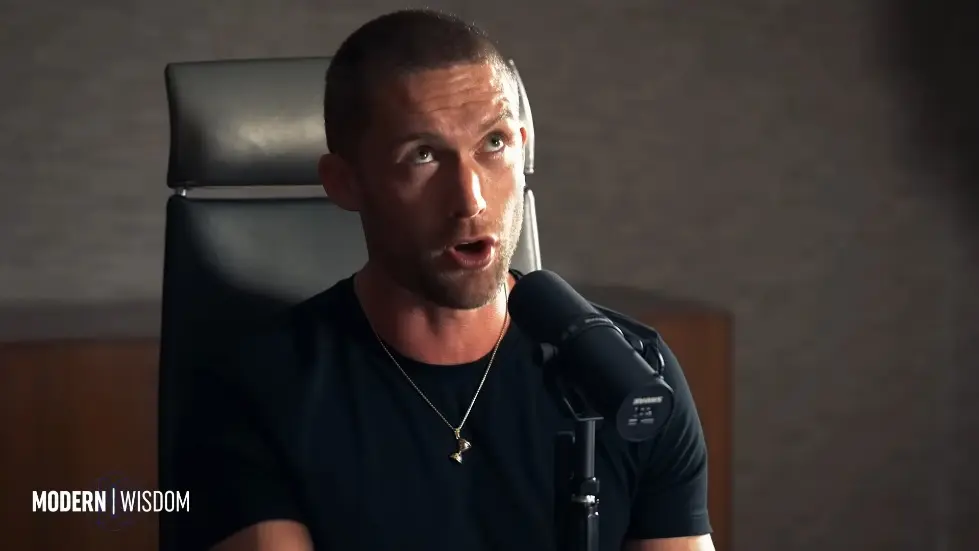
The Relationship Between Inputs and Outputs
- The relationship between inputs and outputs is often more linear in certain areas, such as business or skill-based activities.
- Self-doubt can be more insidious in areas where the relationship between inputs and outputs is less clear.
- Undeniable proof of your capabilities can help you overcome imposter syndrome and self-doubt.
- Building a track record of small successes can help you build confidence and momentum.
- It's important to recognize and celebrate your successes in order to build belief in yourself.
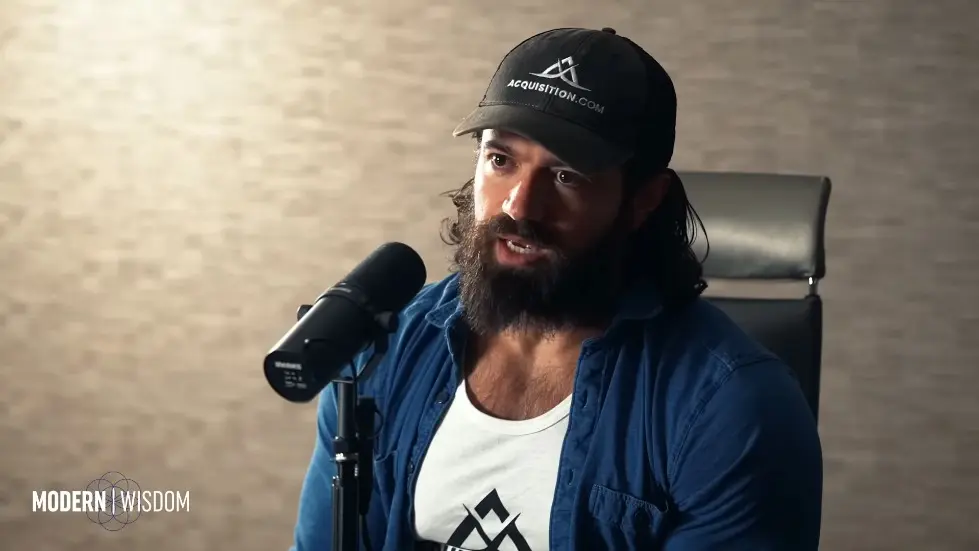
Self-Delusion and Risk Assessment
- Self-belief is not necessary for action.
- Self-delusion can be harmful.
- It is easier to create imaginary obstacles than to take action.
- Good opportunities often look like risks.
- There is always a reason to say no to a deal.
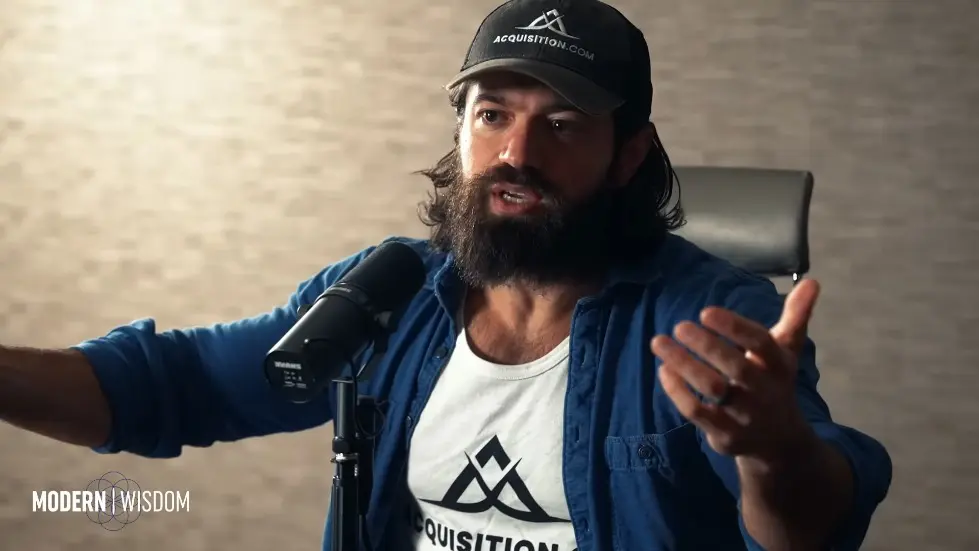
Organizing Opportunities
- Organize opportunities based on the likelihood of success.
- Start with opportunities that require no new skills or effort.
- Learn new skills for opportunities that require more effort.
- Choose opportunities with the lowest likelihood of not happening.
- Apply this framework to personal life decisions as well.
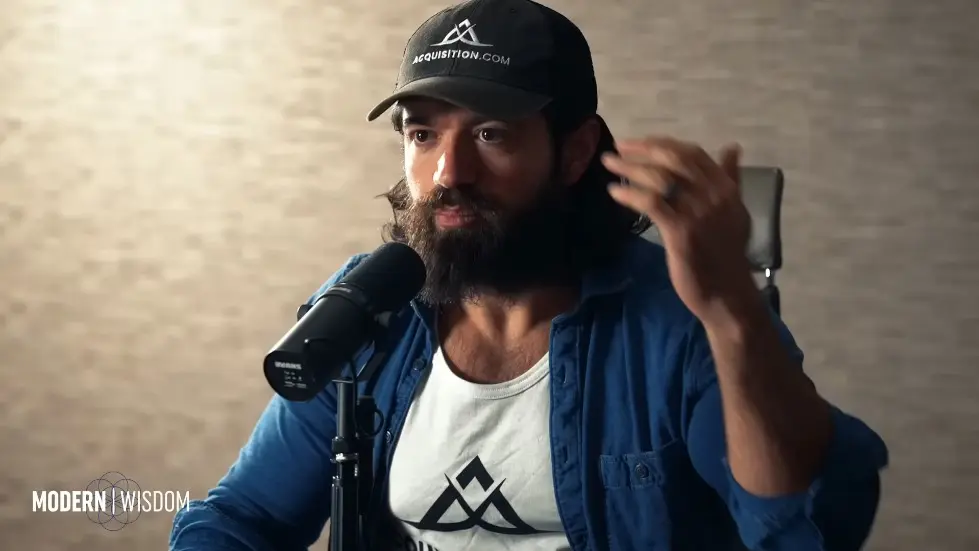
Learning from Investors
- Investors are scored and quantified on their ability to make decisions.
- Investors' decision-making principles can be applied to personal life decisions.
- Advice from world-class investors with a proven track record is valuable.
- Validation of a person's advice is important.
- Scoreboards for decision-making can help validate advice.
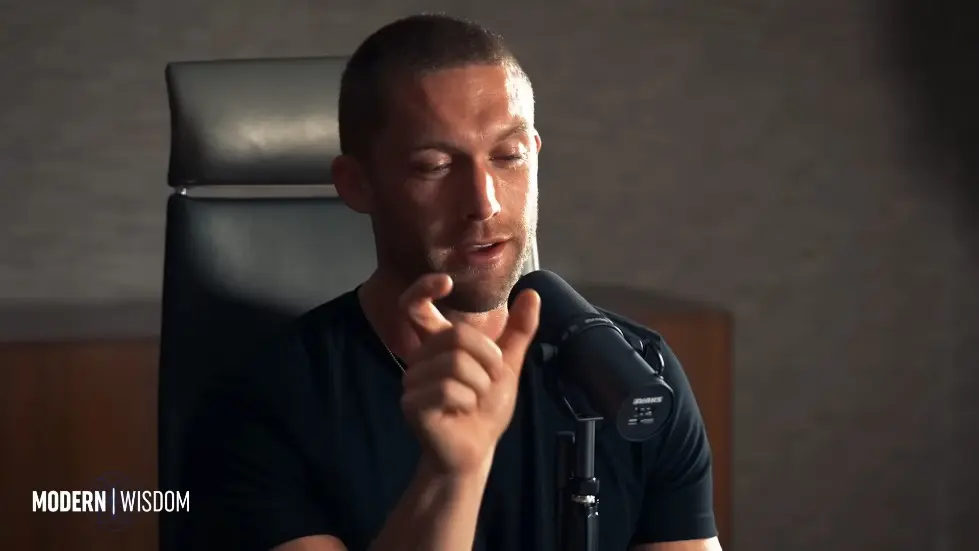
Pushing Through Hardship
- Most people stop when things get hard.
- Building a business is hard and feels shitty.
- Pushing through hardship is necessary for success.
- Reminding oneself of the difficulty of the journey can be motivating.
- Hardship is what separates winners from losers.

Story of Fraternity Pledge Class
- Every time a new pledge class started, within 10-14 days, they would revolt and say they don't want to do it anymore.
- They expected to party with the brothers, but it was much harder than they thought.
- It takes time for people to adapt to a significantly more difficult situation.
- The fraternity's goal was to get the pledges to leave as one unit of people who trust one another and know everything about each other.
- They had to learn everything about everyone else in the house, and every pledge had to do something that would impress a brother and get a signature from every single brother.

Breaking Reality for Pledge Class
- The first 10-14 days were so painful for the pledges because it was such a contrast to their expectations.
- They couldn't drink or talk to girls, and the only people they could talk to were brothers or each other.
- The fraternity was mean to them to get them to be close together.
- They had to learn everything about everyone else in the house, and every pledge had to do something that would impress a brother and get a signature from every single brother.
- After two weeks, the pledges wanted to meet with the president to express their concerns.

Resetting Expectations
- The president asked the pledges who thought it would be easy, and they raised their hands.
- The president told them that this is what hard feels like, and their expectations now match conditions.
- By getting permission to feel shitty, they stopped feeling shitty because they realized this is just their new world.
- The president told them that if they give eight weeks, they will get three and a half years of other people driving them around late at night and cleaning up after them.
- The concept of resetting expectations and realizing what hard feels like is a beautiful bit of motivation.
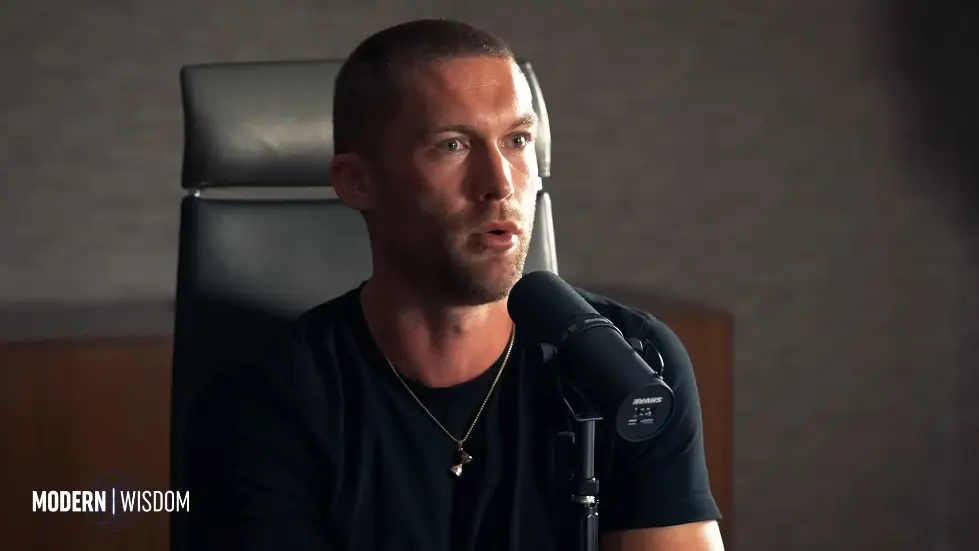
Must Be Nice
- Cameron Haynes, a bowhunter extraordinaire, has "must be nice" written behind the power rack in his garage.
- He put it up because everyone says it to him, thinking it must be nice to be sponsored by top-level bow companies.
- It's a reminder that he worked hard to get where he is and that anyone can do it if they put in the work.
- Having nothing to lose can be an advantage because it allows you to take risks and not worry about losing what you already have.
- People often create imaginary obstacles in their minds that prevent them from taking action.
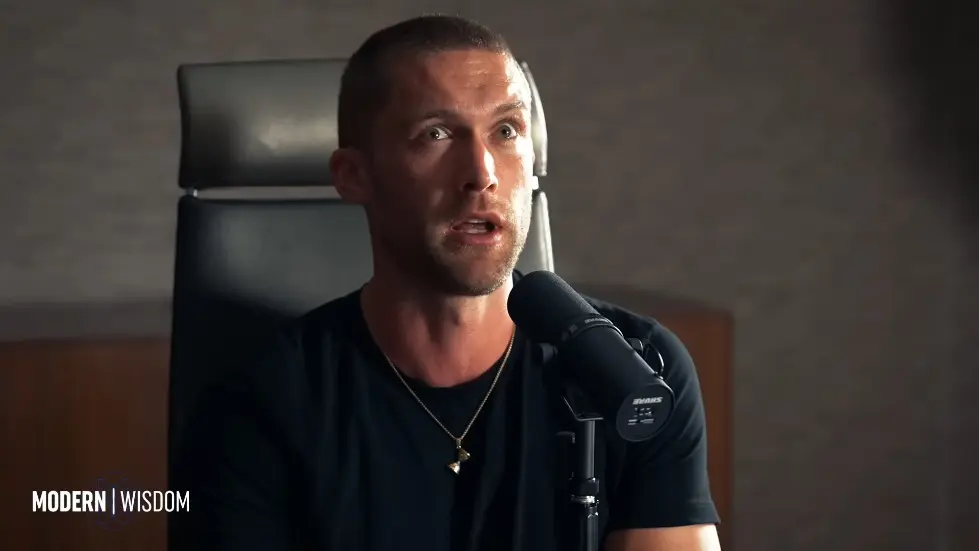
The Importance of Hard Work and Avoiding Burnout
- David Goggins' dedication to pushing himself to the limit as a reminder to keep going.
- The danger of pushing oneself too far and the importance of avoiding burnout.
- The difference between burnout in terms of decreased output and emotional burnout caused by negative comments or self-doubt.
- The importance of reframing negative thoughts and bringing them into the light to reduce shame and self-doubt.
- The value of asking oneself if negative comments or doubts are truly valid and how to move past them.
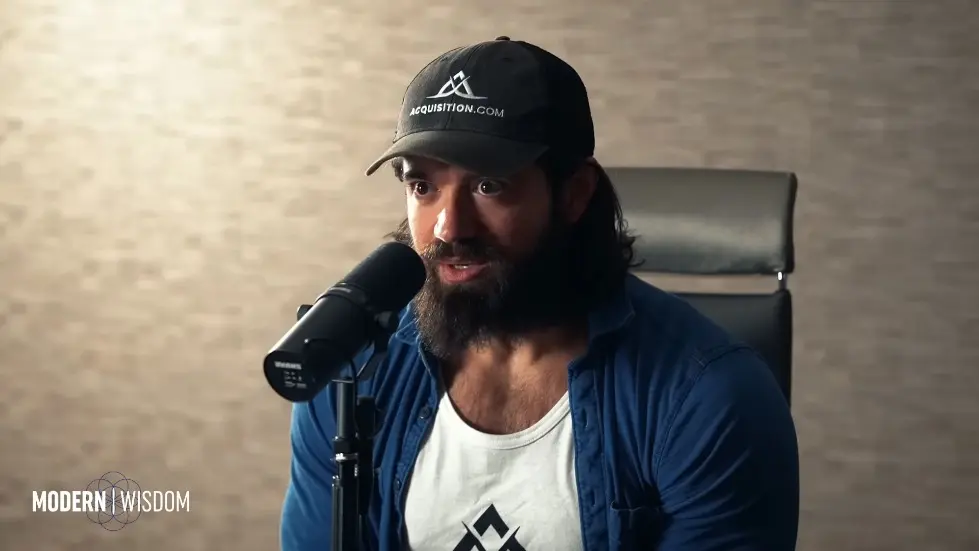
The Illusion of Obstacles
- The idea that many obstacles are imaginary and created by one's own mind.
- The importance of recognizing and overcoming these obstacles to achieve success.
- The statistic that 90% of podcasts do not make it past episode three and 90% of the remaining 10% do not make it past episode 20.
- The realization that by making 21 podcasts, one is in the top percentile of all podcasters in history.
- The ease of winning when one recognizes and overcomes imaginary obstacles.
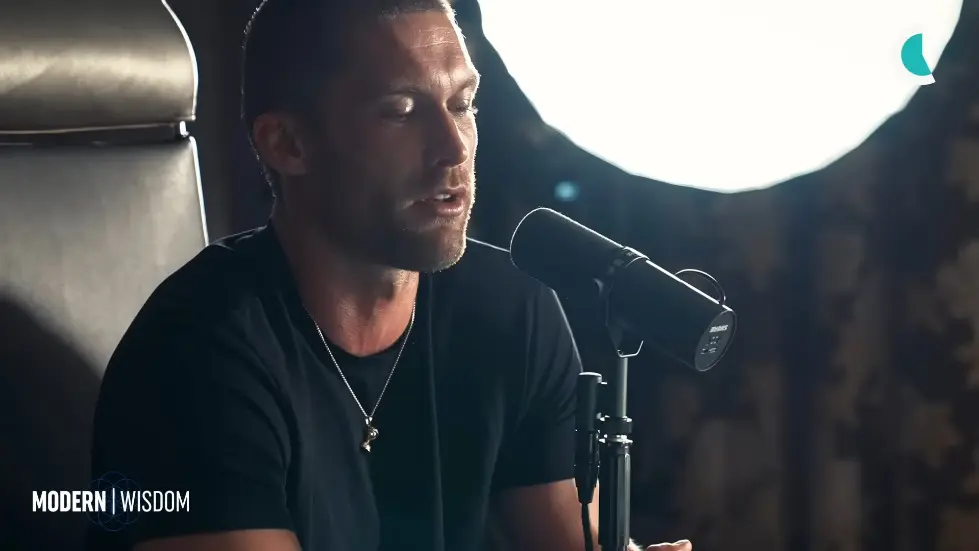
The Advantage of Having Nothing to Lose
- The idea that having nothing to lose can be an advantage in achieving success.
- The example of immigrants who come to a new country with nothing and are able to build successful lives through hard work and determination.
- The importance of recognizing and utilizing the advantages of having nothing to lose.
- The danger of becoming complacent or losing motivation once success is achieved.
- The value of continuing to push oneself even after achieving success.

The Importance of Self-Reflection and Self-Awareness
- The importance of self-reflection and self-awareness in achieving success.
- The value of recognizing one's strengths and weaknesses and using them to one's advantage.
- The danger of becoming complacent or overconfident in one's abilities.
- The importance of seeking feedback and criticism to continue improving.
- The value of recognizing and overcoming one's own biases and limitations.
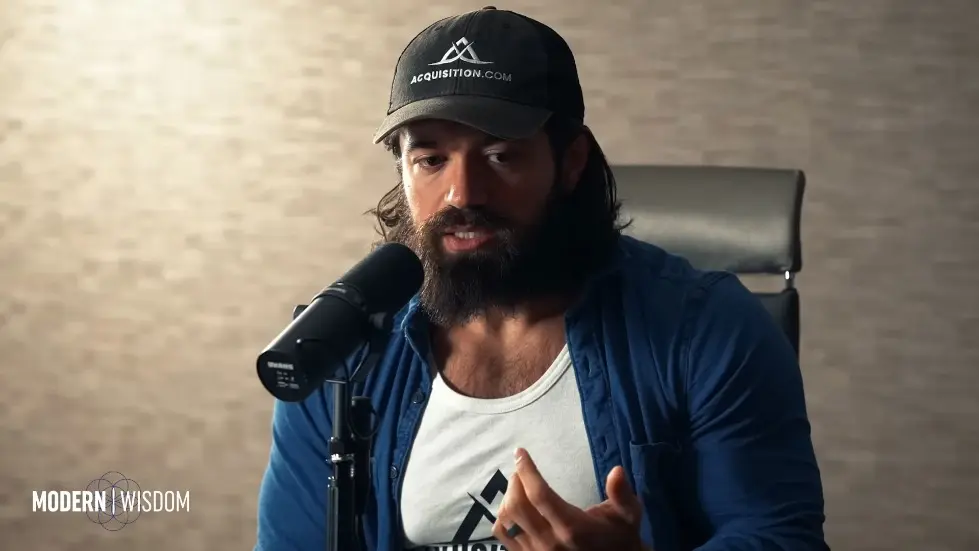
Confronting Reality
- People often try to deny reality.
- Tom Billy's example of accepting criticism about his big ears.
- What if the criticism is right?
- People spend too much effort fighting the fact that the comments might be right.
- What if it does make you a bad person?
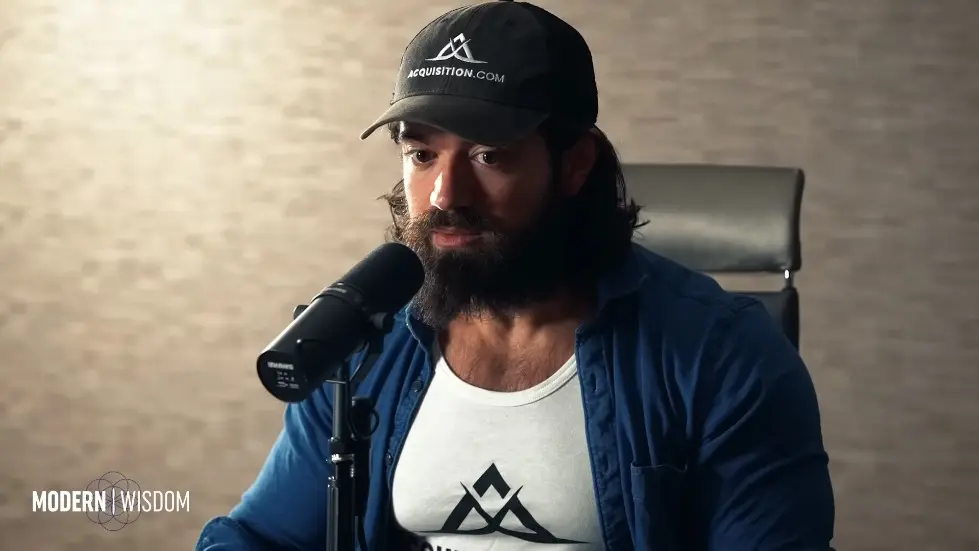
Having Nothing to Lose
- Not feeling like a good person can be an advantage.
- Doing things that create success without feeling like you deserve it.
- Gratitude around not feeling like you deserve it.
- What if they're right and you have nothing to lose?
- The bar is set low because people are weak.

Learning from Poverty
- You stay in poverty until you learn the first lesson of poverty: "My fault".
- Blaming others for your problems gives them power over your success.
- Take ownership and say "My fault".
- Even if you suffered from inequality or abuse, you can still take ownership.
- Take ownership and learn from poverty to become successful.
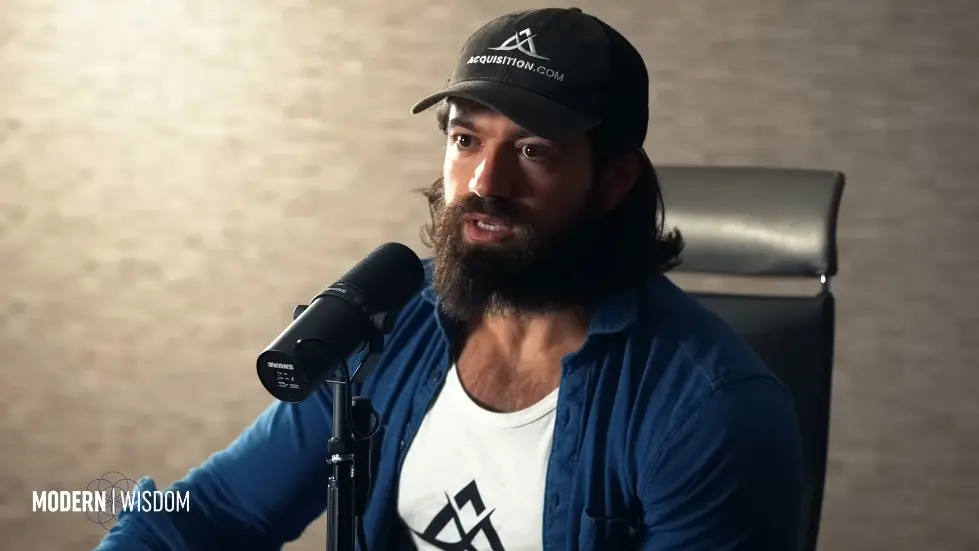
Creating Imaginary Obstacles
- People create imaginary obstacles in their minds that prevent them from taking action.
- People often think they need more information or resources before taking action.
- People often think they need to be in the right mindset before taking action.
- Just take action and figure it out along the way.
- Don't let imaginary obstacles hold you back.
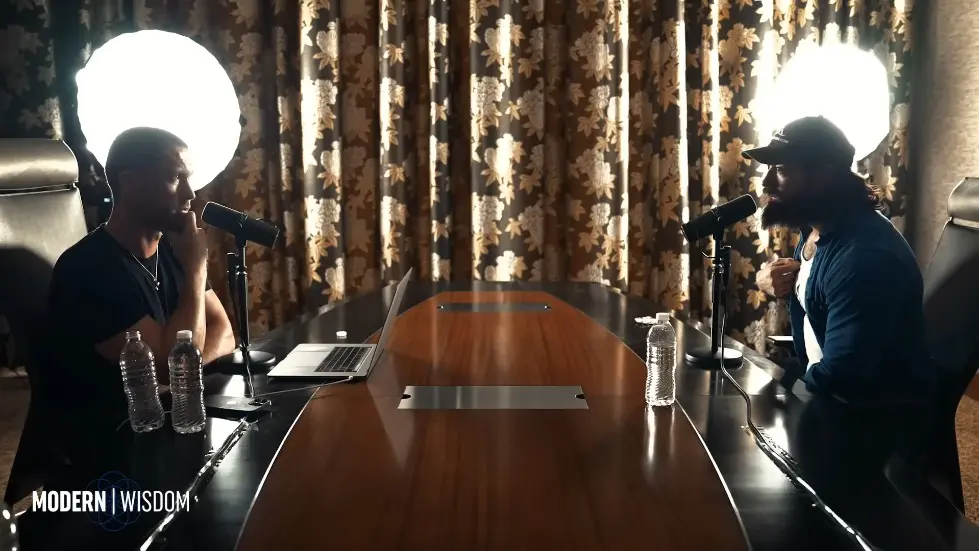
Defining Responsibility and Power
- Having nothing to lose can be an advantage.
- People create imaginary obstacles in their minds that prevent them from taking action.
- Being an inspiration to others who have gone through similar circumstances is a powerful motivator.
- Power follows the blame finger, so taking responsibility for one's actions is important.
- Pointing fingers at others gives them power over one's life.

Moving from Philosophy to Action
- Knowing the input-output equation is crucial to starting.
- Defining the most basic first action is necessary to achieve the desired output.
- Running an ad, making a podcast, or posting content are examples of inputs.
- Knowing why one is not taking action is important.
- Passion and motivation are not always necessary to take action.

Using Pain as Fuel
- Use what you have, including pain, anger, and shame, as fuel in the beginning.
- Eventually, one can find something they are passionate about.
- Not being able to tie one's shoes or lift weights is an obstacle to taking action.
- Using pain as fuel can help one get out of the loop of inaction.
- Starting with small actions can lead to bigger ones.

The Importance of Defining Success
- Defining success is crucial to achieving it.
- Success is different for everyone.
- Defining success in terms of inputs and outputs is important.
- Success is not always about money or fame.
- Success can be defined in terms of personal growth and fulfillment.

Using Pain as Motivation
- Started with hatred of current existence.
- Realized that his father's dreams had to die for his own to live.
- Used pain as a motivator to take action.
- Future casted negative scenarios to magnify current pain.
- Believes pain moves people more effectively than pleasure.
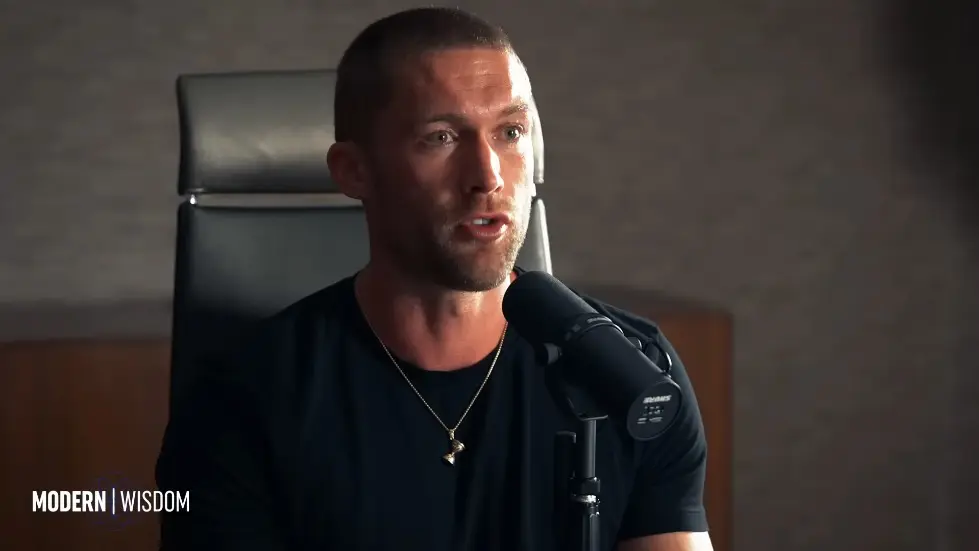
Letting Go of Resentment
- Received an apology from someone who bullied him in school.
- Realized he was no longer carrying much resentment towards his past.
- Questioned how he got past having a chip on his shoulder towards his father.
- Realized that his approval-seeking behavior was always going to be moved.
- Realized that he needed to let go of resentment and focus on his own goals.
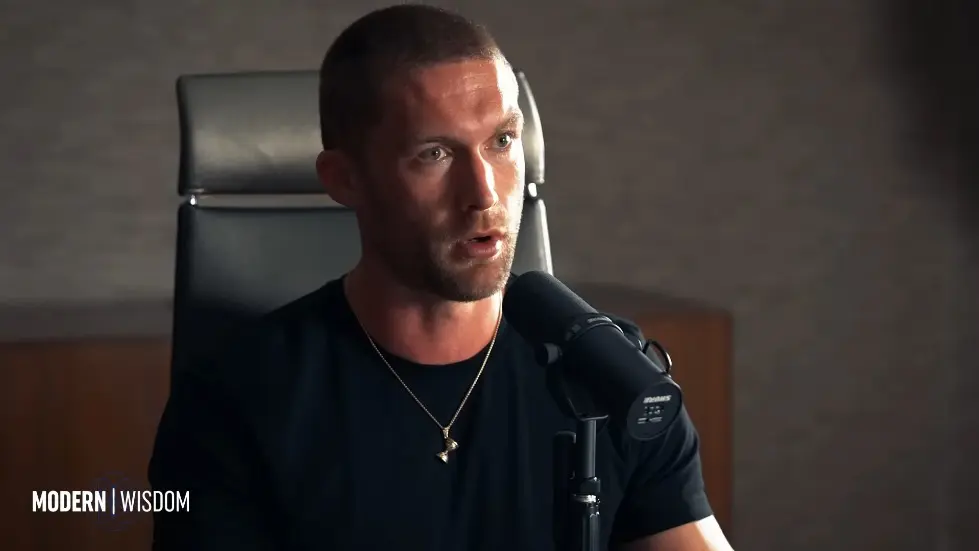
Creating a Figurative Gun to Your Head
- Believes that creating a figurative gun to your head can be a powerful motivator.
- Used negative visualization to increase his action threshold.
- Believes in starting with whatever you have and using it to take the first step.
- Believes in using the fuel you have, not the fuel you wish you had.
- Believes that crossing the line and taking the first step is the most important thing.

Overcoming Authoritarian Relationships
- Realized that he was living out his father's dreams, not his own.
- Initially wanted to make as much as his father, then more, then more than his father ever made.
- Realized that seeking his father's approval was a never-ending cycle.
- Realized that he needed to focus on his own goals and let go of resentment towards his father.
- Believes in moving perpetually under your own motion, not using resentment as fuel forever.
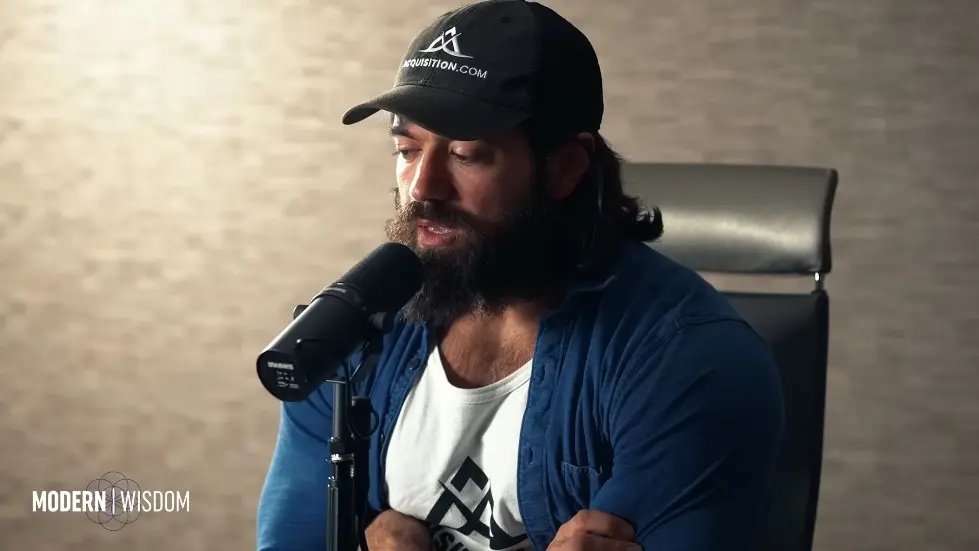
Realizing the Game You're Playing
- Realizing that you're trying to win someone else's game rather than playing your own game.
- Feeling the need to define the game and the meaning of the game that you want to play.
- Having more responsibility to define the rules and what matters most to you.
- Blaming someone else for playing their game rather than playing your own game.
- Understanding the tension between success and the desire to feel like you're enough.

Sacrificing Happiness for Success
- Sacrificing the thing you want, happiness, for the thing that's supposed to get it, success.
- Success is a strange thing because we sacrifice happiness to achieve it.
- Failure can make you miserable, but success may not make you happy.
- Overclocking our lives with regards to success and the pursuits that we go through in an attempt to do this.
- Asking yourself if you're overcomplicating things and if there's a simpler way to do things.

Playing Finite Rules in Infinite Games
- Applying finite rules to infinite games and wondering why it's not working.
- Finite games have known players, agreed-upon rules, and an outcome that wins the game.
- Infinite games have known and unknown players, no rules, and the point of the game is to keep the game going.
- People apply finite rules to infinite games, and the infinite frame always conquers the finite.
- Most of the games worth playing are infinite.

Having Nothing to Lose
- Having nothing to lose can actually be an advantage.
- When you have nothing to lose, you're not afraid to take risks.
- People often create imaginary obstacles in their minds that prevent them from taking action.
- Having nothing to lose can help you overcome these imaginary obstacles.
- When you have nothing to lose, you're more likely to take action and make things happen.
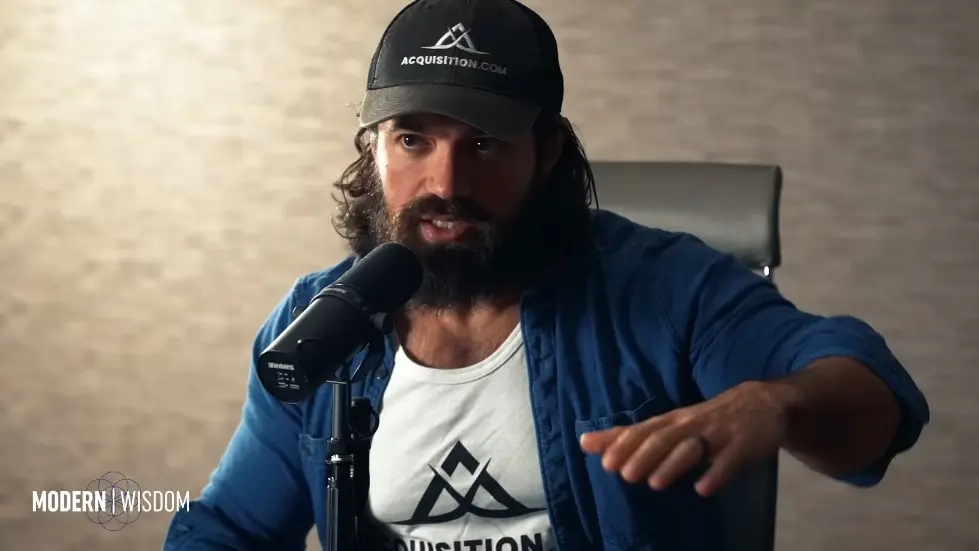
The Point of the Game is to Keep Playing
- The point of success is to do the things that make you successful.
- Redefining what is a perfect day and living as many of those days in a row as possible is winning.
- Eliminating pressure around external outcomes can reduce stress.
- Success is an infinite game.
- Putting more coins on the side of the infinite game is winning.

The Three Most Common Traits of Highly Successful People
- Superiority complex: thinking they are better than others and deserve more.
- Massive insecurity: feeling they will never be enough.
- Impulse control: staying focused on the goal without getting distracted.
- Combination of having a big thing that motivates them and a big away pain that keeps them on the path.
- Running towards something they want and away from something they fear is important.

Champions are Broken
- Champions lack an off button and don't stop.
- The most broken person will win if optimizing for outcomes.
- Desire for achievement, fear or pain, and impulse control are important for success.
- Impulse control is generally seen as a good thing, but superiority complex and massive insecurity are not.
- What problem are we solving? is an important question to ask when making decisions.

What Are We Solving For?
- What we are solving for depends on our goals.
- External accolades of success may not lead to internal happiness.
- Envy of successful people may be misplaced.
- Optimizing for outcomes may not lead to a peaceful or admirable life.
- It is important to define success for oneself and not compare to others.

Optimizing for What You Enjoy
- Having nothing to lose can be an advantage.
- People often create imaginary obstacles in their minds that prevent them from taking action.
- Accept that all heroes are full of [__].
- Money is interesting because it can be a problem solver.
- People criticize others for not having work-life balance, but it's important to optimize for what you enjoy.
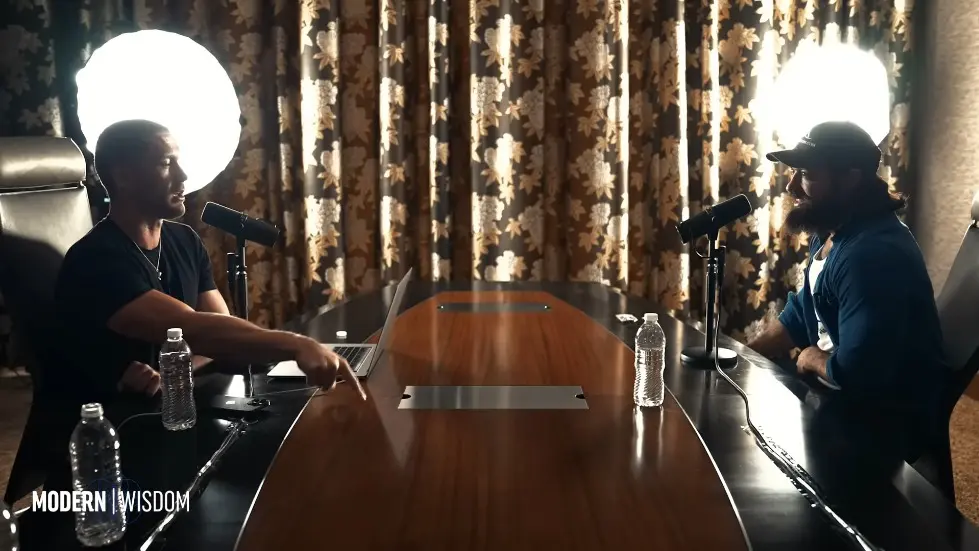
Working at Your Own Pace
- It's important to step back and decide what you're optimizing for.
- Find the thing that you can do longer than anyone else.
- Working at a pace that you like to work at is important.
- It's exciting to see where your limits are and how much harder you can go.
- Temper your pace with the risk of burnout.

The Intersection of Passion, Skill, and Pay
- The intersection of what you love to do, what you're good at, and what you can be paid for is important.
- Slaves worked all the hours they were awake for their entire lives.
- If they can do it, so can you.
- People want to project their idea of what they think your life should be like onto you, but it's irrelevant.
- It's important to focus on what you enjoy and what you're good at.
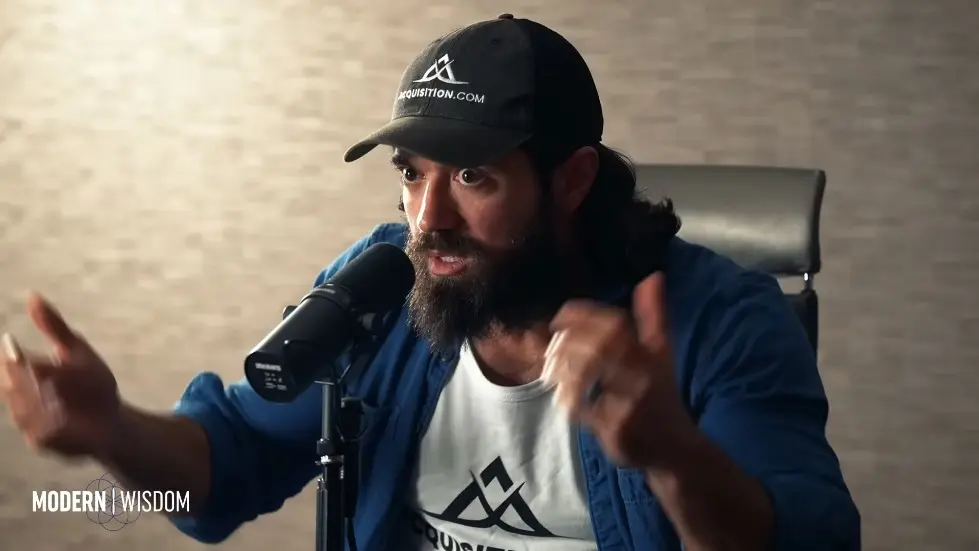
Ignoring Criticism and Focusing on What You Love
- People will criticize you for not having work-life balance, but it's important to focus on what you love.
- If all you did was work all day, people would still criticize you for not having work-life balance.
- It's important to ignore criticism and focus on what you love.
- What other people think about your life is irrelevant.
- It's important to optimize for what you enjoy and what you're good at.
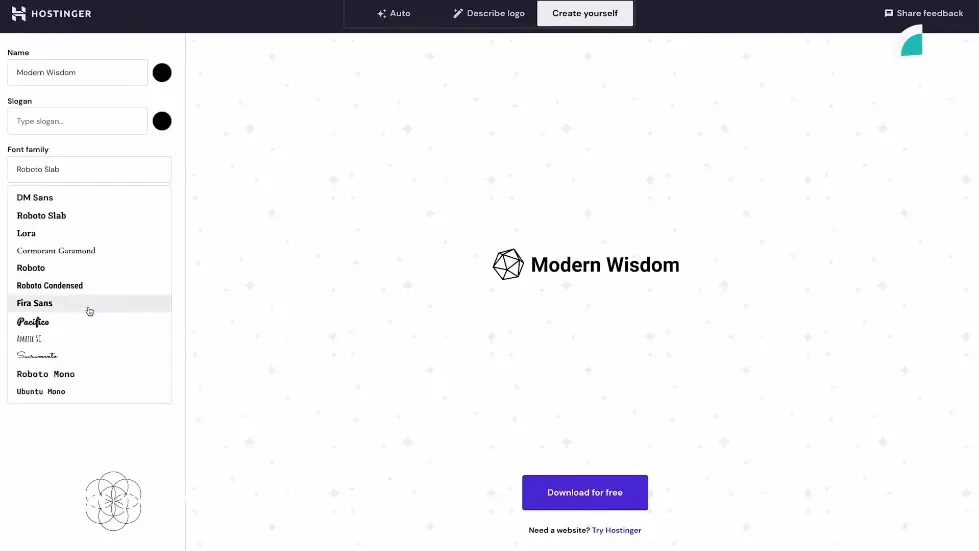
Advantage of Having Nothing to Lose
- People who have nothing to lose can take risks that others cannot.
- Having nothing to lose can be an advantage in business because it allows you to take risks that others cannot.
- People who have nothing to lose are often more motivated to succeed because they have no safety net.
- Having nothing to lose can be a powerful motivator because it forces you to take action.
- People who have nothing to lose are often more creative because they have to be.

Creating Imaginary Obstacles
- People often create imaginary obstacles in their minds that prevent them from taking action.
- These imaginary obstacles are often based on fear and self-doubt.
- People create imaginary obstacles because they are afraid of failure.
- Imaginary obstacles can be overcome by taking action and facing your fears.
- People who overcome imaginary obstacles are often more successful because they are willing to take risks.
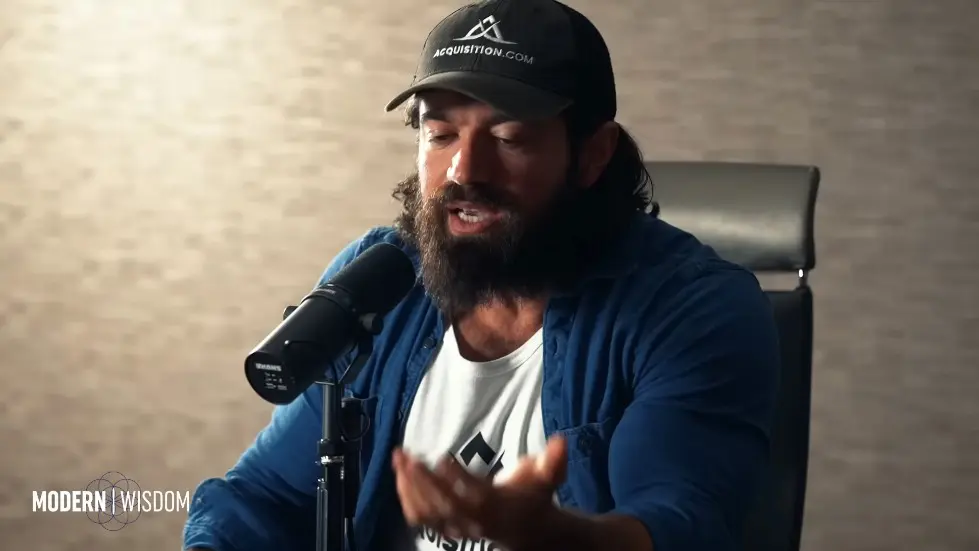
Optimizing for Rewards
- People are motivated by rewards.
- Micro-rewards can be a powerful motivator.
- People should focus on optimizing for rewards rather than avoiding punishment.
- People should do things that reward them as frequently as possible.
- People should avoid things that feel like punishment.

Finding Your Thing
- People should be directionally correct rather than absolutely correct.
- People should try a lot of things in the beginning to gain perspective.
- People should decrease their action threshold to get started.
- People should use the cat and cheese analogy to start running towards something.
- People should choose something they enjoy and are good at.
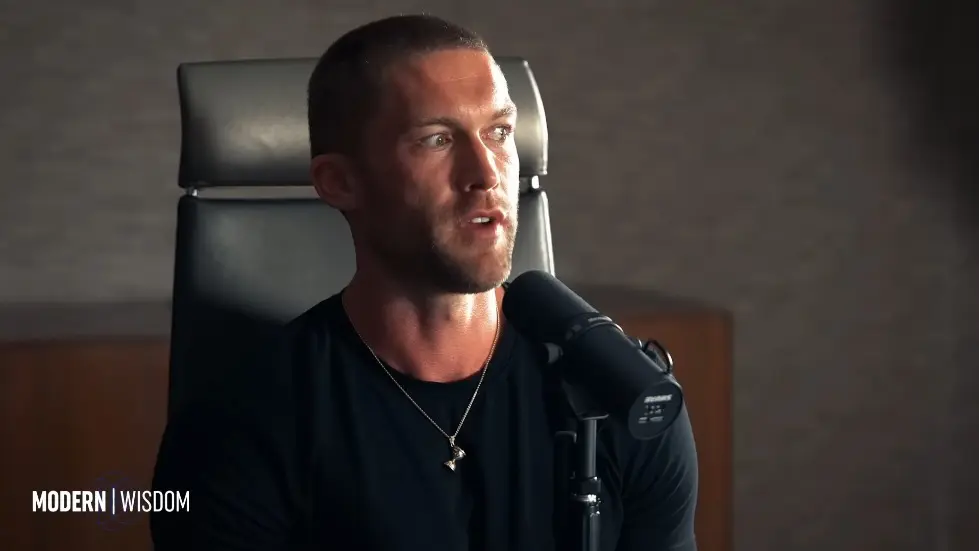
Behavior and Reverse Role Model
- Human behavior is based on past rewards and predictions of future rewards.
- Reverse role model is a lifestyle perspective of doing the opposite of what you hate.
- Identify the things you hate and do the opposite of them.
- Perfectionism is procrastination masquerading as quality control.
- Investor frames can be useful in decision-making.

Inflation and Motivation
- Inflation can be a motivating force for business people to invest.
- Without inflation, business people may keep more coins in their vault and transact less.
- Higher cost of capital creates a higher urgency to do something with the money.
- Underestimating opponents gains nothing.
- Inflation is a motivating force for investors.

Complacency and Hubris
- Statements like "we're way better than those guys" gain nothing and increase complacency.
- Hubris is the only thing that upsets the guys on top of the mountain.
- History shows that humans lose because of their egos.
- People underestimate how much smarter they can be with 20 minutes of preparation.
- Practice makes you better, and not practicing is purely an ego play.
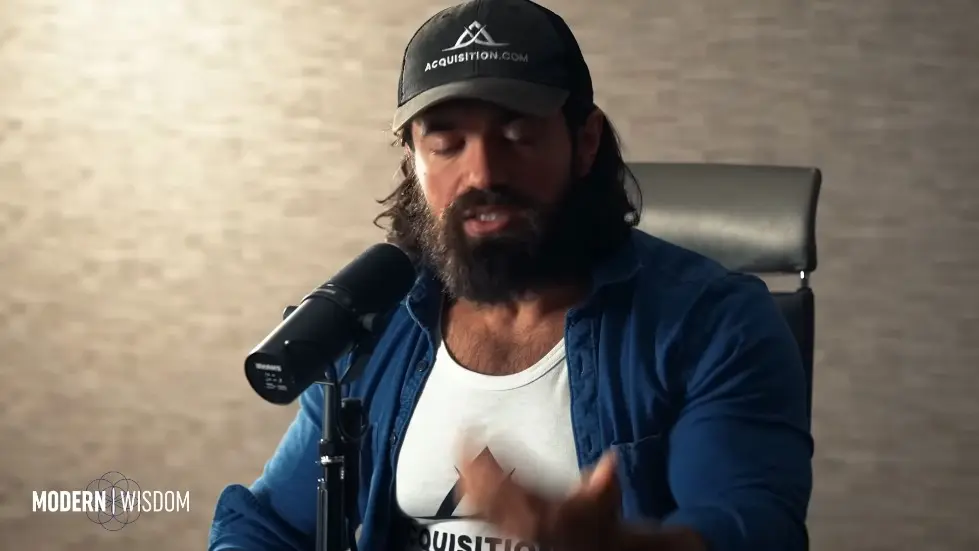
Notes to Self
- Twitter stream is just thoughts to self.
- Notes to self are reminders of things as they come up.
- Assume that you're always the underdog and that they have a trick up their sleeve.
- Don't fall into the trap of thinking you're going to outperform someone or crush a company.
- Work ethic is more important than natural gift.

Copying and Originality
- Copying others' content is a rough-hewn, pixelated version of the original.
- People who copy know that they are creating an inferior version of the original.
- Being the first mover is an advantage because others need you to iterate their content.
- Original content comes from documenting things that happen in your life, not from what's trending.
- Find your original sources of content to avoid being second best.
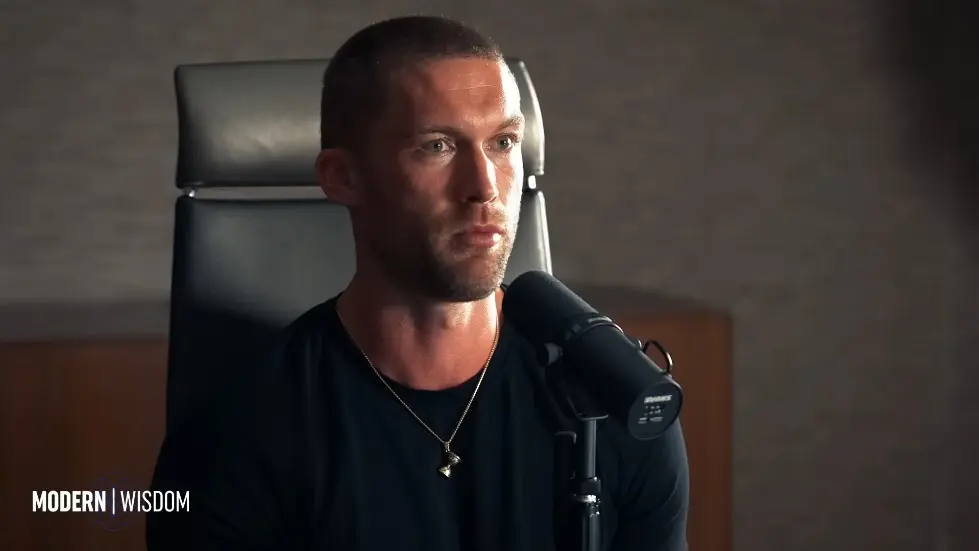
Egos and Success
- More people stay poor because of their egos than get rich off them.
- There are far more successful people who are rich and anonymous than those who flaunt their wealth.
- Most influencers sell something from their platform about building a platform.
- Successful people are usually humble because they know what it's like to be inadequate.
- Having an ego means you're not in a big enough pond.

Having Nothing to Lose
- Having nothing to lose can be an advantage because you're not afraid to take risks.
- People who have nothing to lose are often more creative and resourceful.
- Having nothing to lose can be a motivator to work harder and smarter.
- People who have nothing to lose are often more resilient and adaptable.
- Having nothing to lose can be a temporary state that leads to success.
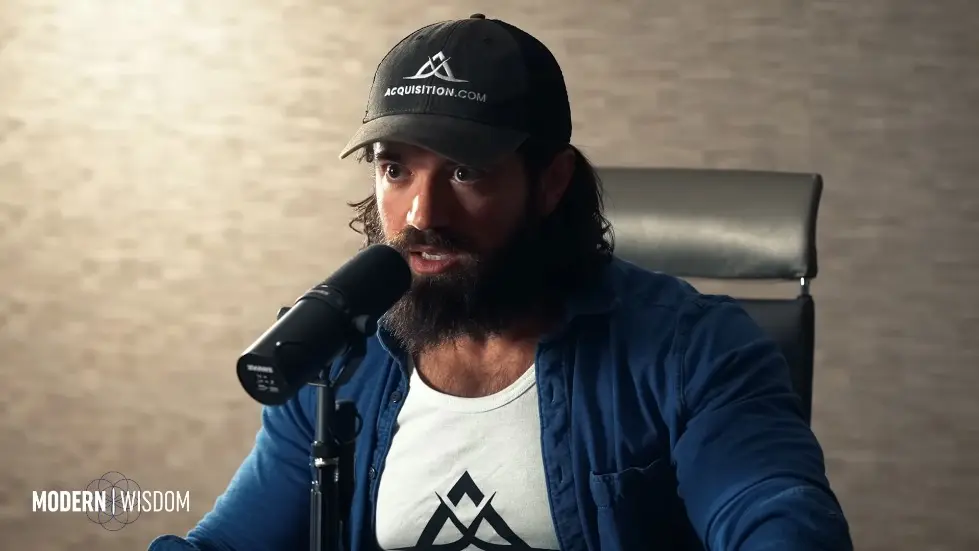
Imaginary Obstacles
- People often create imaginary obstacles in their minds that prevent them from taking action.
- Imaginary obstacles are often based on fear, uncertainty, and doubt.
- Imaginary obstacles can be overcome by taking small steps and building momentum.
- Imaginary obstacles can be reframed as opportunities for growth and learning.
- Imaginary obstacles can be eliminated by focusing on what's within your control.

The Ego and Humility
- The moment you get the ego is the moment you stop growing.
- Having an ego artificially limits the size of your vision.
- You cannot say that you are awesome at something and admit that you suck at it at the same time.
- The more you learn about something, the more you realize you don't know (Dunning Kruger effect).
- Comparing yourself to people like Warren Buffett can help you stay humble.

The Price of Success
- Loneliness is a kind of tax you have to pay to atone for a certain complexity of mind.
- Success can lead to a rarified strata where few people can relate to you.
- There are fewer people at the top of the mountain, but they may have even more context than anyone else.
- Humans don't need that many relationships to be happy.
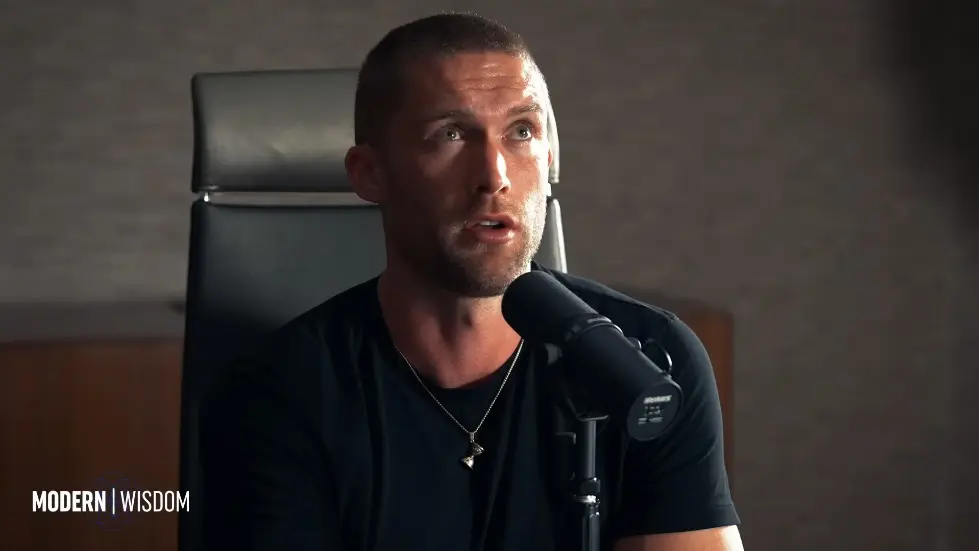
Creating Imaginary Obstacles
- People often create imaginary obstacles in their minds that prevent them from taking action.
- These obstacles are often based on fear and limiting beliefs.
- It's important to identify and challenge these obstacles in order to move forward.
- One way to do this is to ask yourself, "What's the worst that could happen?"
- Most of the time, the worst-case scenario is not as bad as you think.
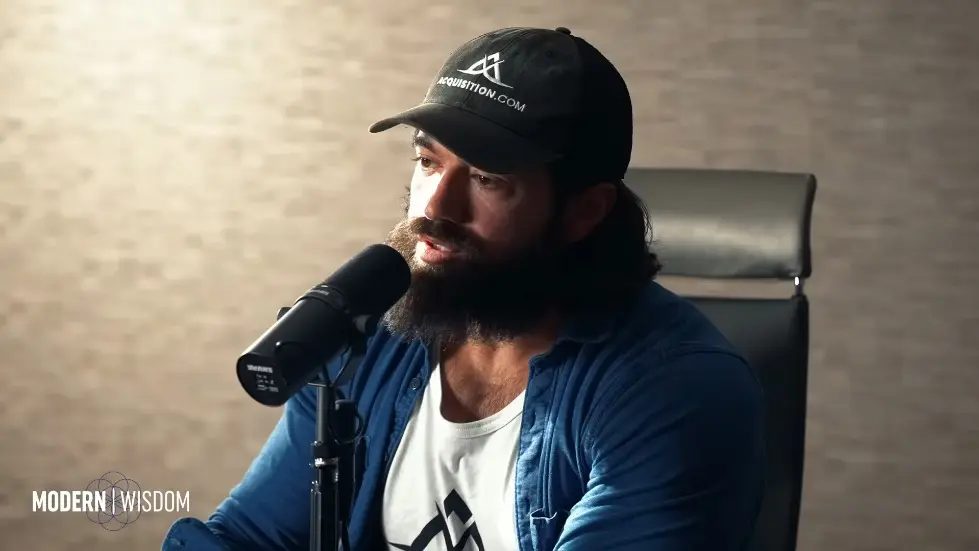
Having Nothing to Lose
- Having nothing to lose can actually be an advantage.
- When you have nothing to lose, you can take bigger risks and make bolder moves.
- People who have everything to lose are often more cautious and risk-averse.
- Having nothing to lose can also give you a sense of freedom and liberation.
- It's important to embrace the mindset of having nothing to lose in order to achieve success.
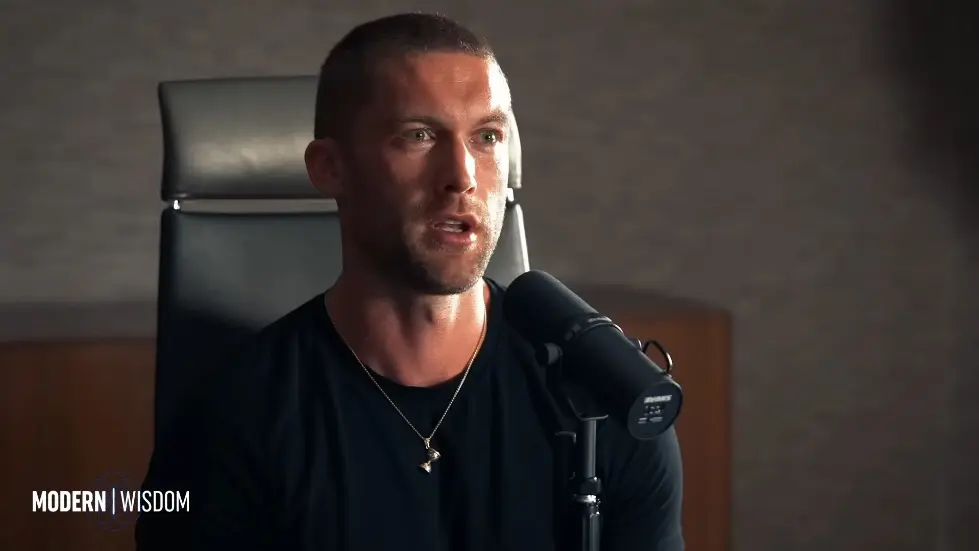
Friendship and Social Circles
- Having a smaller pool of friends to choose from is not necessarily a bad thing.
- Most people only have two or three good relationships in their life anyway.
- Entering communities as you climb up the social ladder means more free agency in friendship.
- Constantly moving up the ladder means more transitional periods in friendships.
- It's only a problem if you hate it.
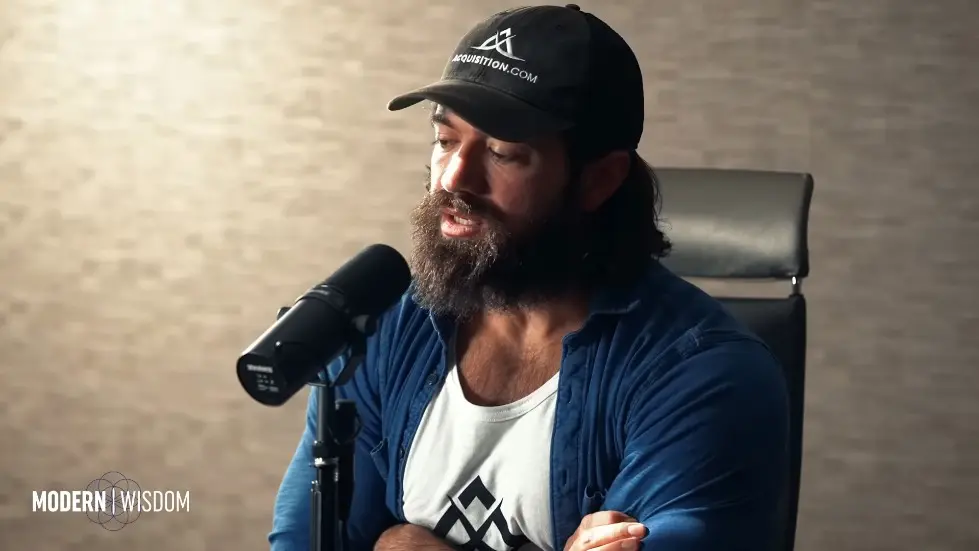
The Future of Social Media
- AI will be the main driving force behind the future of social media.
- Verification of bot versus human will become more important in the future.
- There will be more AI-generated content in the future than there is today.
- How we respond to AI-generated content is unknown.
- The three-way feedback mechanism from algorithms designing better delivered content to users is a two-way street.
- The algorithm programs the user, making them easier to predict.
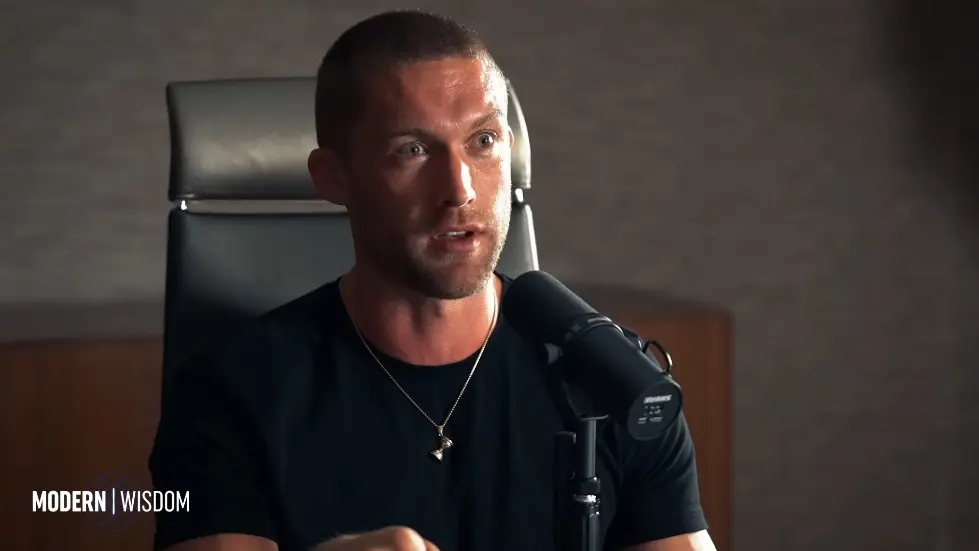
The Impact of AI on Content Creation
- AI will make the best content every time in seconds.
- AI-generated content will understand the back end of the algorithm and can nudge preferences.
- Creators will become the middleman between the algorithm and the audience.
- Vertically integrated platforms will create content on their own using AI and feed it directly to the audience.
- AI-generated content will cut out the middleman.
- Every person should have their own curated wifey.
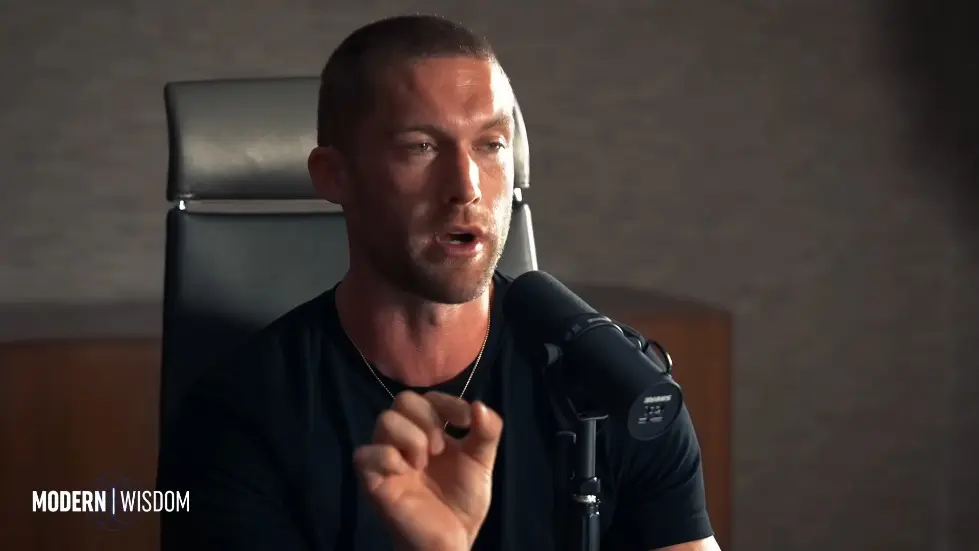
Imaginary Obstacles and Having Nothing to Lose
- People often create imaginary obstacles in their minds that prevent them from taking action.
- Having nothing to lose can actually be an advantage.
- When you have nothing to lose, you can take more risks.
- People who have nothing to lose are often more successful because they are willing to take risks.
- People who have everything to lose are often more conservative and less willing to take risks.
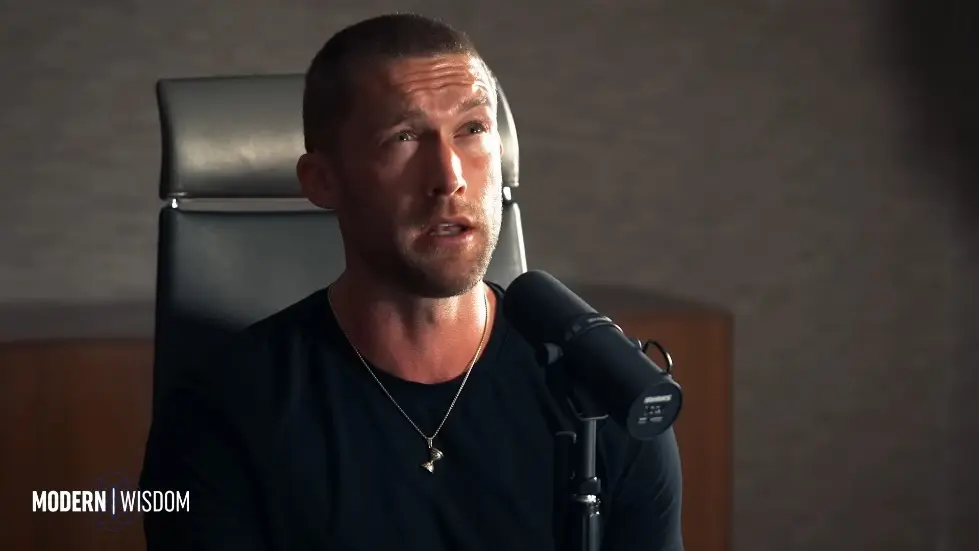
Impact of Technology on Human Nature
- Social media is becoming more compelling and addictive, leading to limbic hijack and reduced freedom.
- AI is inevitable, but there have been very few technologies that humans have collectively decided not to pursue, such as nuclear bombs.
- Tabletop genetic sequencing machines are an example of how technology can be controlled through global moratoriums.
- The hardware for genetic sequencing is complex and expensive, but the software is easy to code and the rewards are significant, leading to concerns about control and domination.
- The creation of a world where everyone's personal news feed is perfectly curated could lead to limbic hijack and reduced responsiveness to personalized ads.
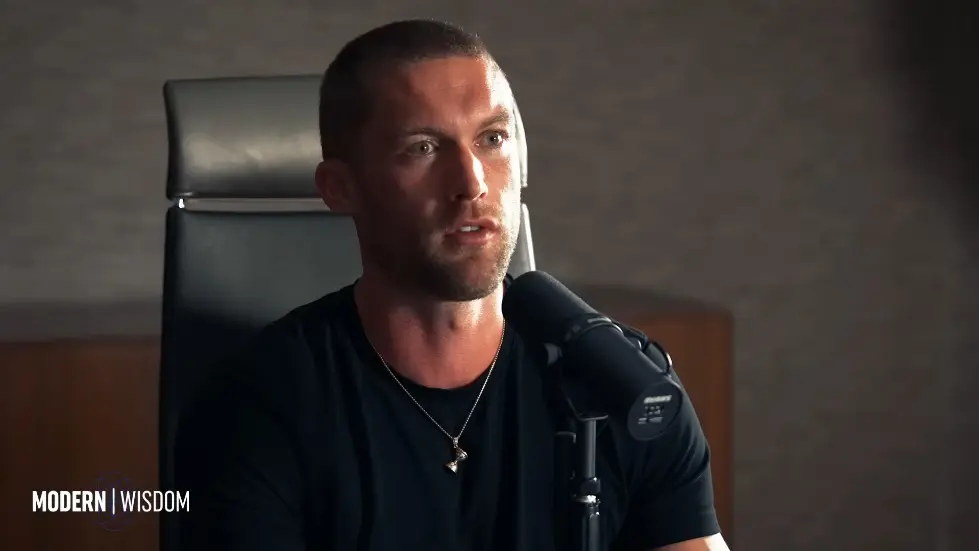
Long-Term Implications of AGI
- AGI could lead to the creation of an omniscient, omnipotent being similar to God.
- AGI could be benevolent in the long term, but potentially mean in the short term.
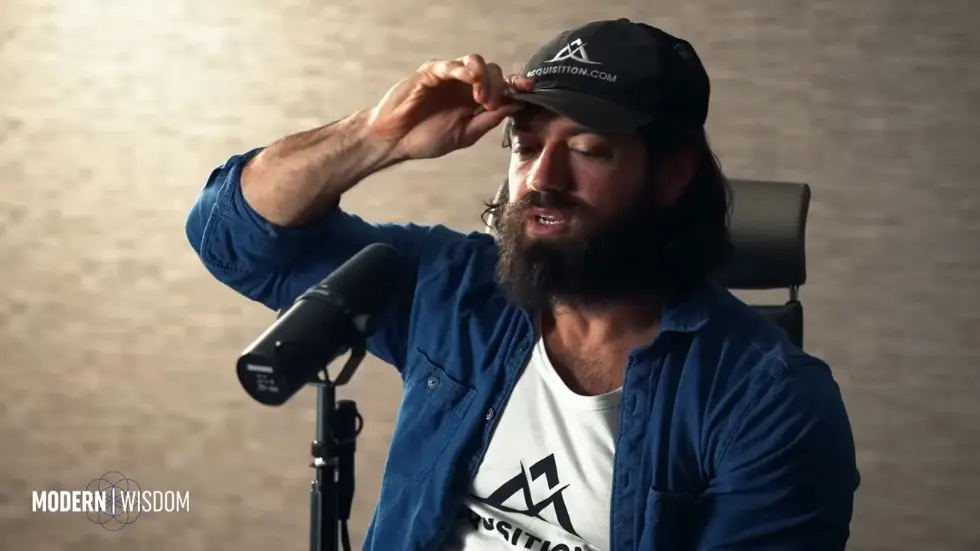
Upcoming Book Release
- The second book in the 100 million dollar series, "100 Leads," will be released this year.
- The book has taken 3,500 hours to write over the last two years.
- The book is the first four to six hours of the author's day every day.

Harsh Truths About Human Nature
- Having nothing to lose can actually be an advantage.
- People often create imaginary obstacles in their minds that prevent them from taking action.
- Humans are wired to seek pleasure and avoid pain, which can lead to short-term thinking and decision-making.
- People are often more motivated by fear than by positive incentives.
- Humans have a tendency to conform to social norms and follow the crowd, even if it goes against their own beliefs.
- People are often more concerned with their own self-interest than with the greater good.
Watch the video on YouTube:
19 Harsh Truths About Human Nature - Alex Hormozi | Modern Wisdom Podcast 610 - YouTube
